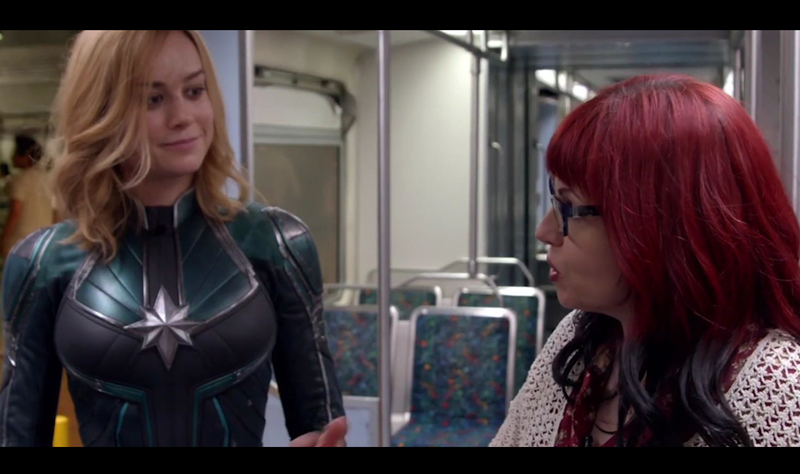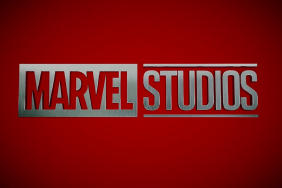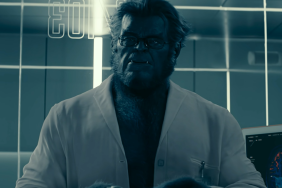Captain Marvel is now out on digital platforms and on Blu-ray, 4K Ultra HD and DVD. Last month ComingSoon.net got the chance to attend the espnW Summit in NYC and speak with Captain Marvel comic book writer Kelly Sue DeConnick as well as Marvel Studios‘ Mary Livanos about the film and its impact! Check out the interview below, and get your copy of the film by clicking here!
Captain Marvel follows Carol Danvers (Brie Larson) as she becomes one of the universe’s most powerful heroes when Earth is caught in the middle of a galactic war between two alien races. Set more than a decade prior to the events in 2008’s Iron Man, Captain Marvel is an all-new adventure from a previously unseen period in the history of the Marvel Cinematic Universe.
The film also starred Samuel L. Jackson, Lashana Lynch, Gemma Chan, Algenis Perez Soto, Rune Temte, McKenna Grace, with Annette Bening, and Jude Law. Reprising their roles from Marvel’s Guardians of the Galaxy are Djimon Hounsou and Lee Pace, and returning once again to a Marvel Studios film will be Gregg as Agent Phil Coulson.
Marvel Studios’ Captain Marvel is directed by the writing/directing team of Anna Boden and Ryan Fleck, whose credits include Mississippi Grind and Half Nelson. An all-star collective of accomplished writers penned the screenplay, including Meg LeFauve (Inside Out), Nicole Perlman (Guardians of the Galaxy), Geneva Robertson-Dworet (Tomb Raider), Liz Flahive & Carly Mensch (GLOW) and Anna Boden & Ryan Fleck.
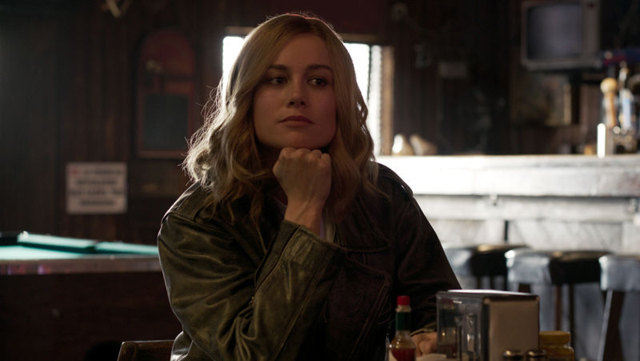
ComingSoon.net: You were with the movie for a long time through development.
Mary Livanos: Yes, pre-development, pre-production, all the way up until the movie was shot, and then I hopped off for a different project.
CS: What would you say was the most distinctive aspect of the story or the character that changed from the beginning of development to the final product?
Livanos: Oh that’s interesting. What inherently had to change over and over again because there was a lot of logic to be sorted out, where she falls within the Marvel cinematic universe, when the movie should take place. The decision to place it in the 90’s stemmed from everyone’s love of that era and not having seen the 90’s represented on screen and in our cinematic universe thus far. But also, wanting to carve out a space for Carol of her own in the MCU, and having her add to the canon of the MCU in an unexpected way.
CS: In her movie Carol is a fish out of water similar to the way Thor was in his first movie. But of course, by the third “Thor” film it was mostly cosmic craziness. Do you think that the character would be more in her element in a story told entirely off-Earth?
Livanos: I’m fascinated with both sides of Carol. I cannot get enough of her in her Air Force persona. I can’t get enough of Carol on Earth as a fighter pilot. I think that whole part of her life is completely fascinating. But also, what she’s doing in the cosmic arena is an unknown, so exploring that is also awesome. I’m a fan of both.
Kelly Sue DeConnick: Yeah, and I am as well. I’ve written both and enjoy both, and I think I had a wonderful experience writing Carol in her apartment building in New York City, and invested a lot in her supporting cast. Then I was actually kind of mad when I had to take Carol into space. It was like, “but I just made all these…” but okay. And then, ended up having a wonderful experience writing her cosmic adventures as well. I think that was one of the beauties of the character, was that there was this flexibility.
Livanos: And the sacrifice of having to be away from Earth in order to fill the duties in the cosmic arena is…
DeConnick: Yeah, but it’s also such an adventure for her. Like that scene with Rhodey that I got to write.
Livanos: Because how could Carol say no?
DeConnick: I have the chance to do this thing, you know, and I can’t not do that thing. I’ve got to do the thing, you know?
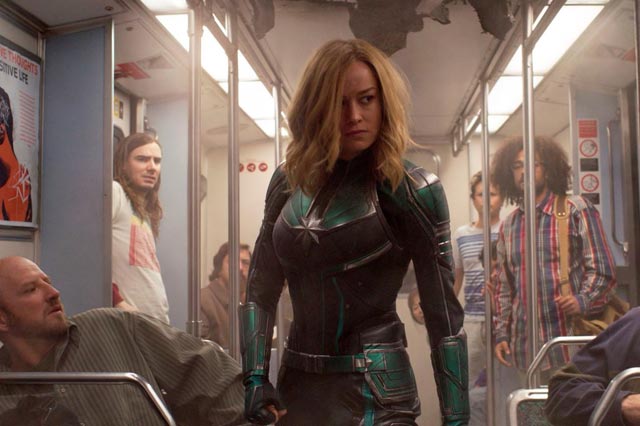
CS: When you were watching the movie, were there any scenes that really stuck out involving Carol where you were like, “Ah, I wish I’d written that!” or “I wish I’d come up with that!”
DeConnick: Oh no. My ego is enormous. I was like, “Oh, that’s mine, that’s mine.” No. No, that’s not true. I actually think the structure of the film is very smart. I don’t think I would’ve come up with that and that pisses me off a little bit, but in a loving and supportive kind of way.
CS: The thing I loved about the structure was if you told the movie linearly it would basically just be a remake of “Green Lantern” with a woman.
DeConnick: And that did so well.
CS: Exactly.
DeConnick: So really, no wait, hold on. Wait. Got an idea. Giant disaster, but with a lady. Don’t do that. It’s a bad idea. They both have cores. Have you noticed that?
Livanos: Yeah. And also cats.
CS: But adding that sort of “Memento” aspect to it, where she’s reverse engineering her own origin really made it its own thing.
Livanos: No, it was very, very smart.
DeConnick: And inspired by “The Enemy Within.” Geneva needs to get a ton of credit for that. She’s an incredibly talented, very bright woman. She did a great job.
CS: The whole “Captain Marvel” movie was a story of Carol finding out her full potential and who she is and her powers, but we didn’t get to spend a lot of time with the fully-realized Captain Marvel. When we get to “Endgame” that’s not really her story. She’s used like the eagles in “Lord of the Rings.” Whenever they’re in a really big jam, she swoops in. Moving forward, what aspects of Carol as a person do you hope to see explored in the films?
DeConnick: She is not allowed to answer that. I will answer that because I don’t know what the hell I’m talking about.
Livanos: Okay.
DeConnick: Carol has this really lovely thing that we don’t get to see in women very often, where she’s both wildly overconfident and wildly under-confident. I need a version of this that doesn’t have profanity in it, but my friend Maggie Estep used to use this phrase, “The piece of crap at the center of the universe.” She didn’t say crap. But I think that there are people who have that thing where it’s like both low and high self-esteem in the same package. And I think Carol’s got a little bit of that going on. She’s very quick tempered. She’s got a lot of hubris. She thinks she knows what’s going on. So often she doesn’t, but she also has this amazing ability to be wrong and get back up and try again and not have pride in it in a way that holds her back. I love that about her. That’s interesting and nuanced and not a thing we get to see in women very often. Portrayals of women in our culture is just… there’s like seven, you know? And men are as varied as their numbers and women, you know, we get spots in boxes. Carol doesn’t really fit in any slot or box. I’ve seen her in real life. I know lots of people like her in real life. I feel like her sometimes. But to see that person on screen is so interesting and refreshing and it’s great. She’s neither perfect nor a mess, you know? She’s somewhere in the middle of that, and that’s where most of us fall.
CS: I’m an editor of a movie site, so I was very privy to all the misogynistic stuff that was written, even before people had seen the movie. It was a lot of garbage, but I also got to see some really wonderful reactions. One woman tweeted right after she saw the film, “Oh, that’s how guys feel after they seen an action movie!” What reactions to the film touched you the most?
DeConnick: Well, the number of little girls in my line. I’ve only done one convention since the movie came out, but either my audience has just immediately gotten younger, but the number of little girls in the line is exponentially more. When they come through, I always ask them if they’ve seen the movie and they of course always have. And then, I ask them what their favorite part is. And there’s a lot of Flerken love, which I appreciate. So it’s not 100 percent, but a remarkable number of them can point to the moment when she says, “I have nothing to prove to you.” And I can ask if they can tell me why it’s their favorite moment. The fact that young girls can articulate that is both incredibly empowering and also a little bit heartbreaking. They already recognize that there are people who would limit them. But if they can recognize it now, if they can see it, maybe they can avoid it, you know? In my generation we were trained to pretend it wasn’t there or it was somehow our fault.
Livanos: For myself I was a little girl running around in a Pink Ranger outfit, so to see little girls in Captain Marvel costumes, there’s something about seeing representation on screen that reminds you of yourself, that gives you permission to dream huge.
DeConnick: Every little girl flies.
Livanos: Exactly. That’s the coolest part is what it must unlock in their imaginations to me.

CS: One point of criticism towards the character -which we also heard with Rey from Star Wars- was that she’s overpowered. But you could say that about Superman. You could say that about Thor. You can say that about Neo in “The Matrix.” You could say that about a lot of male characters. The solution to that problem in movies -to raise the stakes and to make the character more relatable- has generally been to strip away the character’s power. James Mangold did it twice in a row with Wolverine. How do you think you can maintain relatability and stakes without stripping her of these amazing powers she has?
Livanos: Well, what was really cool about taking the Kree Skull War and putting that on screen is that no amount of firepower can just solve an intergalactic political mutiny overnight. You have to attack your problems in different ways, and you have to expand your perspective to get the full picture of a situation that you can’t punch your way out of.
DeConnick: Right, yeah. Higher, faster, further. The whole point of that storyline was to take on the idea of the white savior, and to give Carol a problem she couldn’t punch. As a writing problem, there are a lot of ways around it. There are a lot of ways that it’s been done very successfully. And with Carol, I think it’s something very interesting about the fact that there’s that line about “she’s a kettle on a hot stove,” right? The energy it takes her to contain her power is a thing, right? So I don’t know. I mean, I always wonder when people talk about Superman being hard to write, I’m like, “you’re wrong.” I’m sorry. You’re just wrong.
CS: Yeah, I don’t think it’s that it’s hard, I think a lot of the people that have been involved in those films have not thought outside the box enough. Hopefully we’ll get to see that explored more with Carol.
DeConnick: Yeah, and we’re always balancing the powers and wish fulfillment with their humanity, right? So none of these powers inoculate them from pain. None of these powers inoculate them from heartbreak. None of these powers inoculate them from self-doubt. Those are the things that, as human beings, we look at and understand and recognize ourselves. And then, ultimately, what we hope to find in this genre is hope, that these super powers are metaphors for our own gifts, and that if we all come together with the best of our abilities, we’ll overcome those things that challenge us.
Captain Marvel
-
Captain Marvel
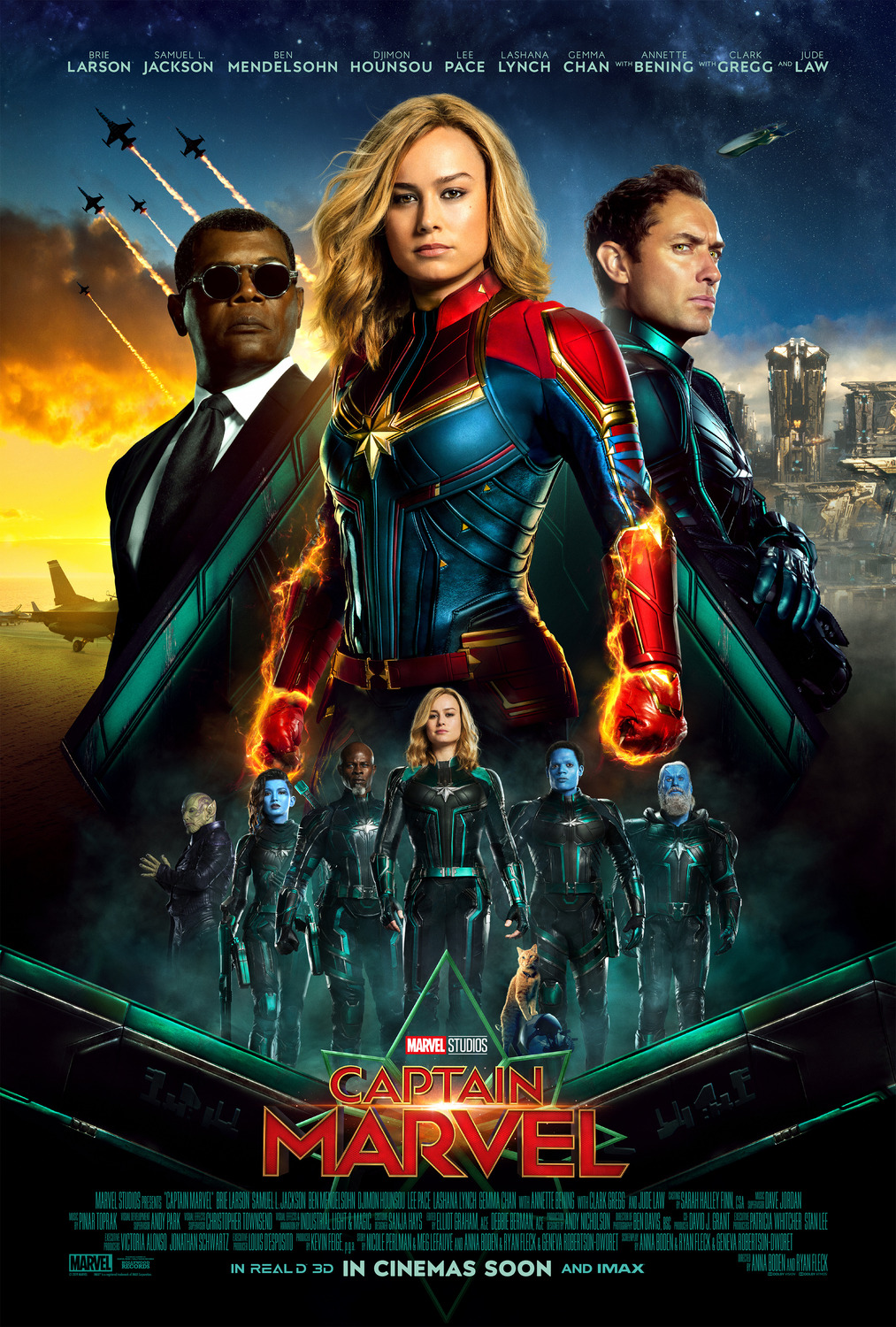
-
Captain Marvel
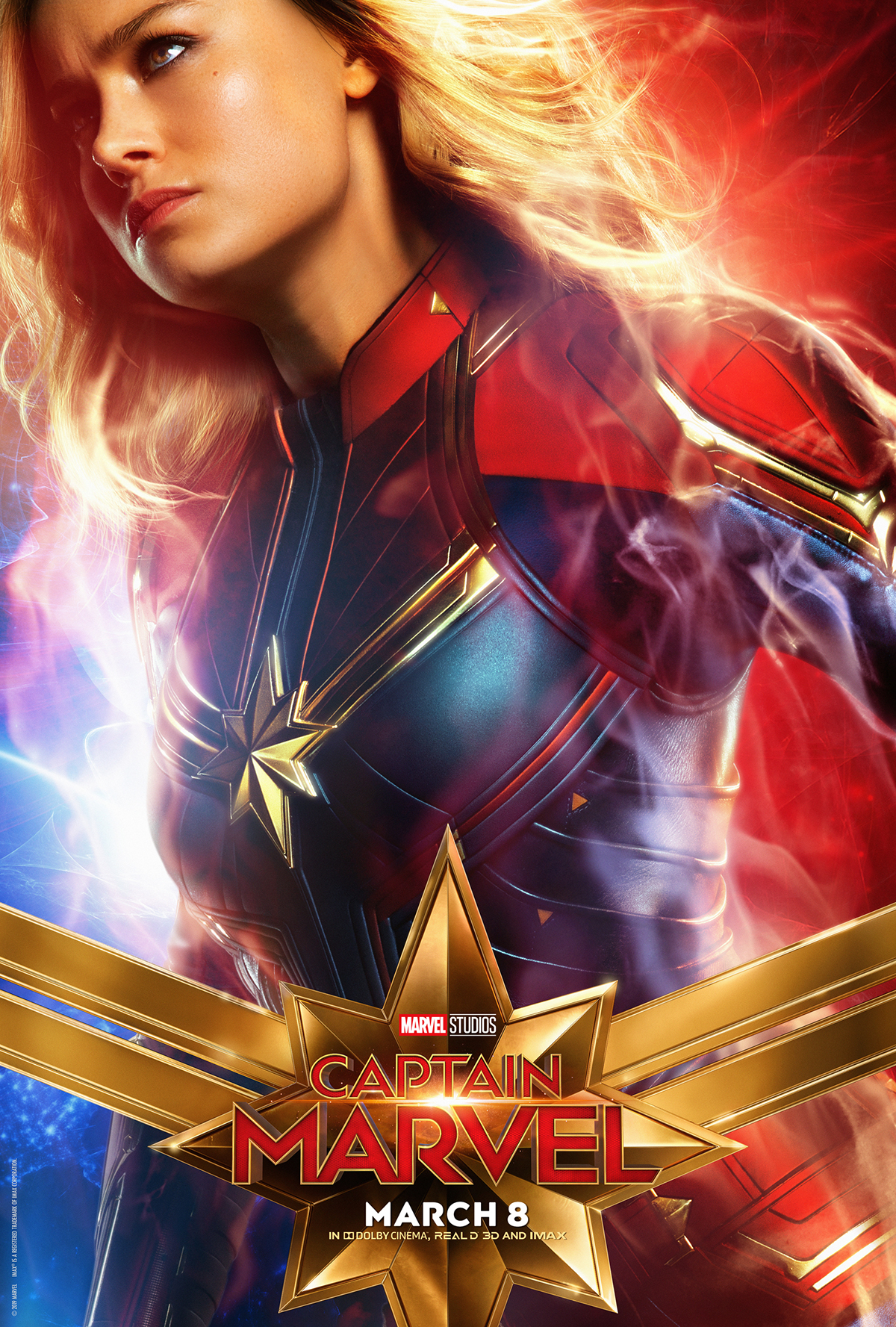
-
Captain Marvel
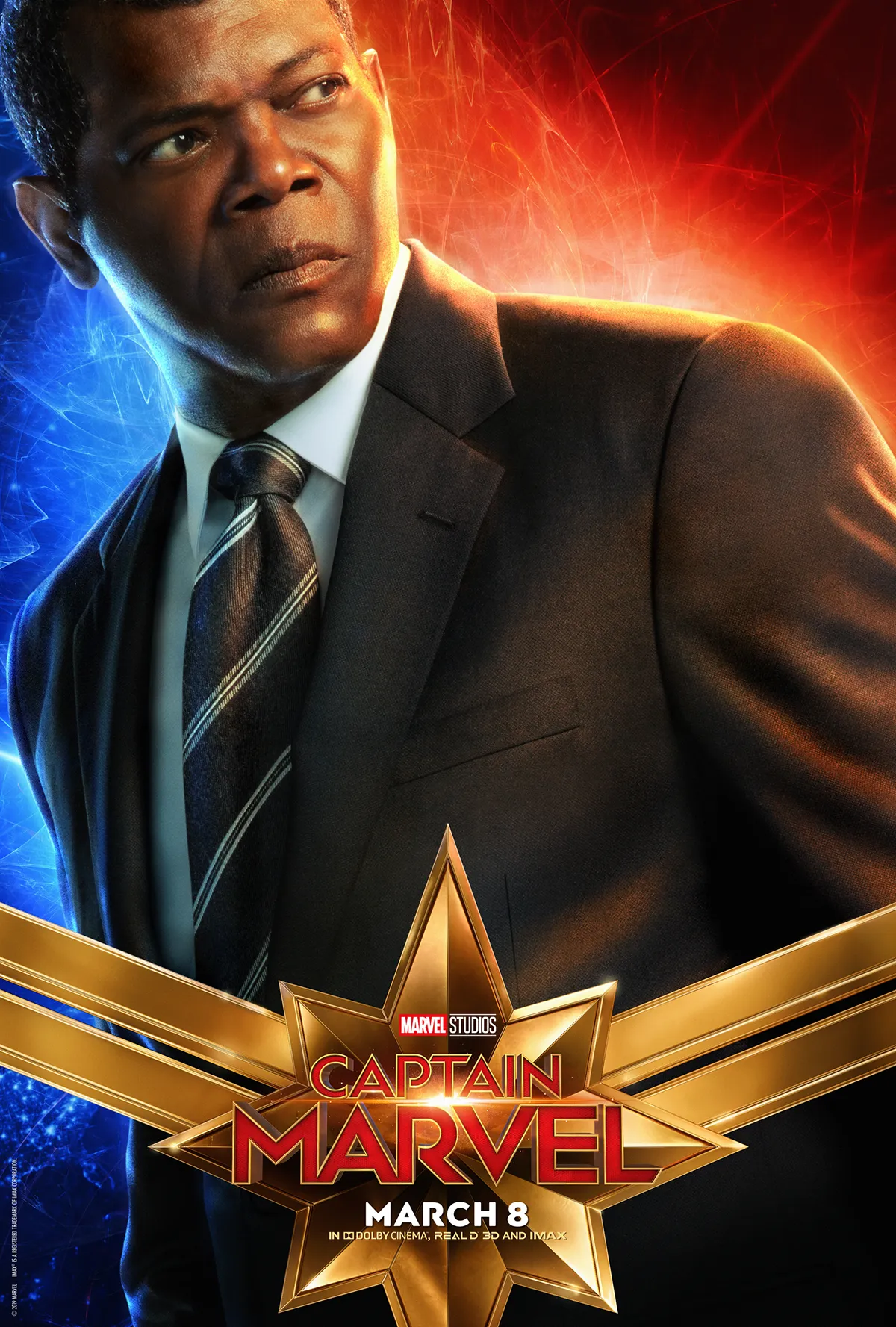
-
Captain Marvel
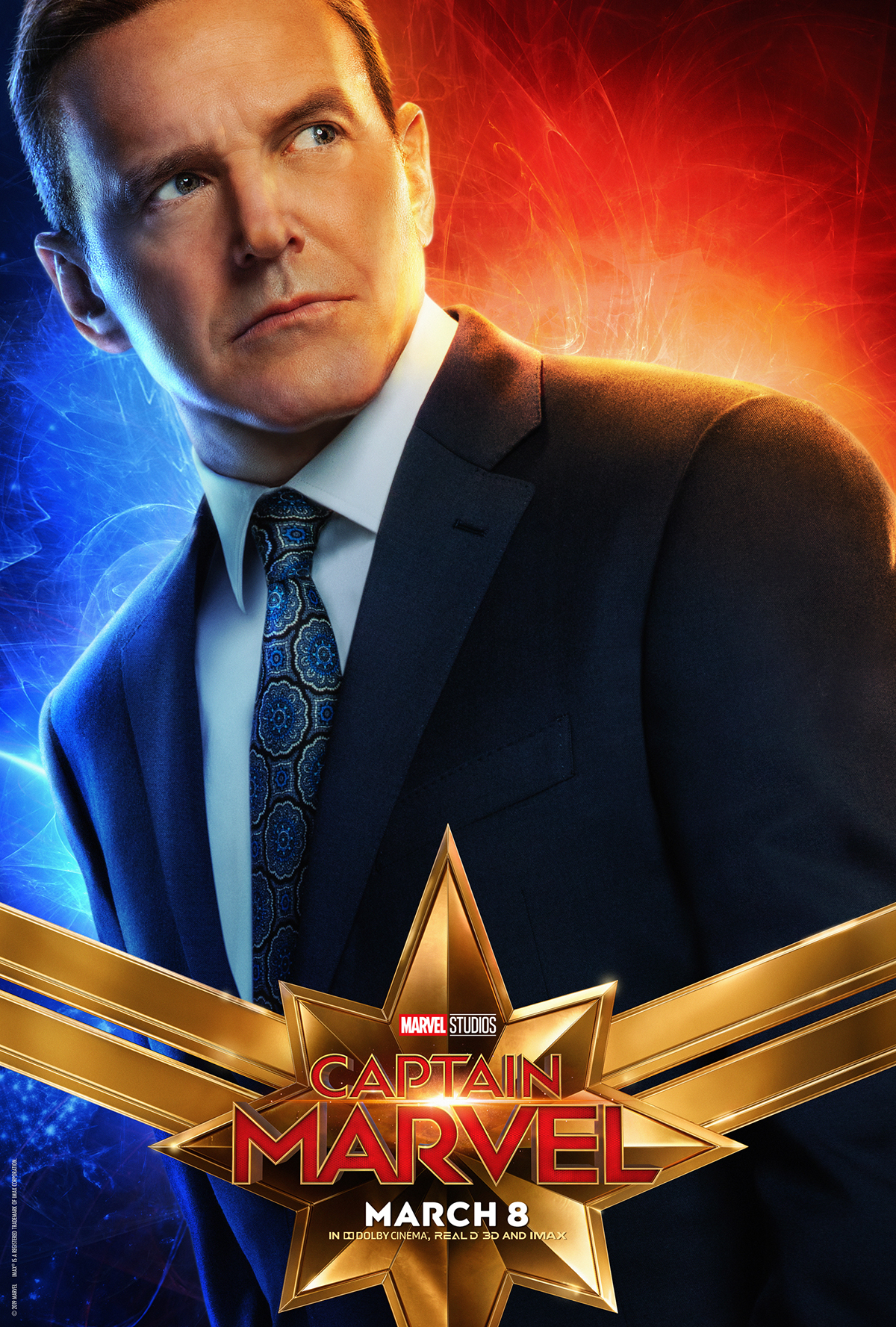
-
Captain Marvel
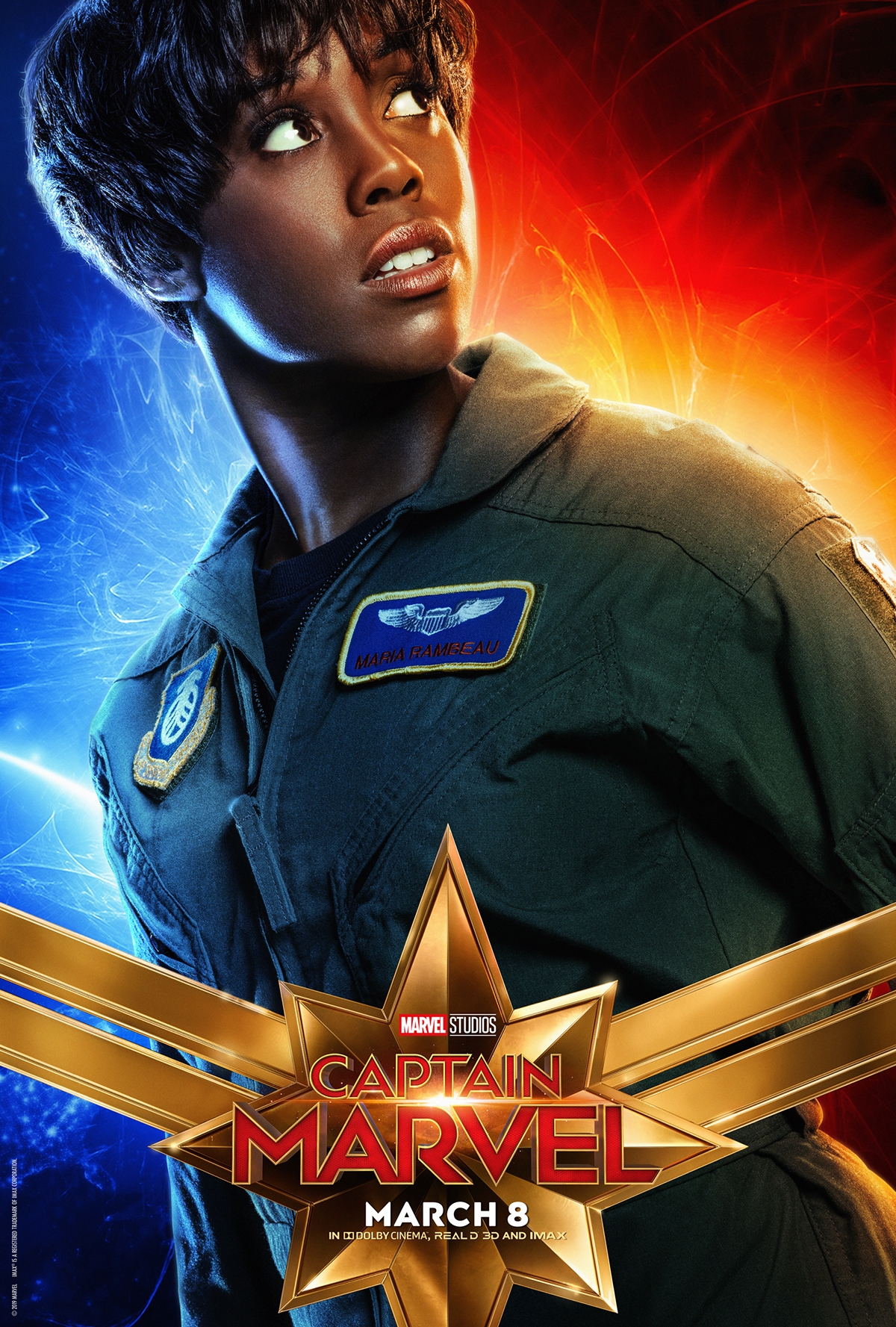
-
Captain Marvel
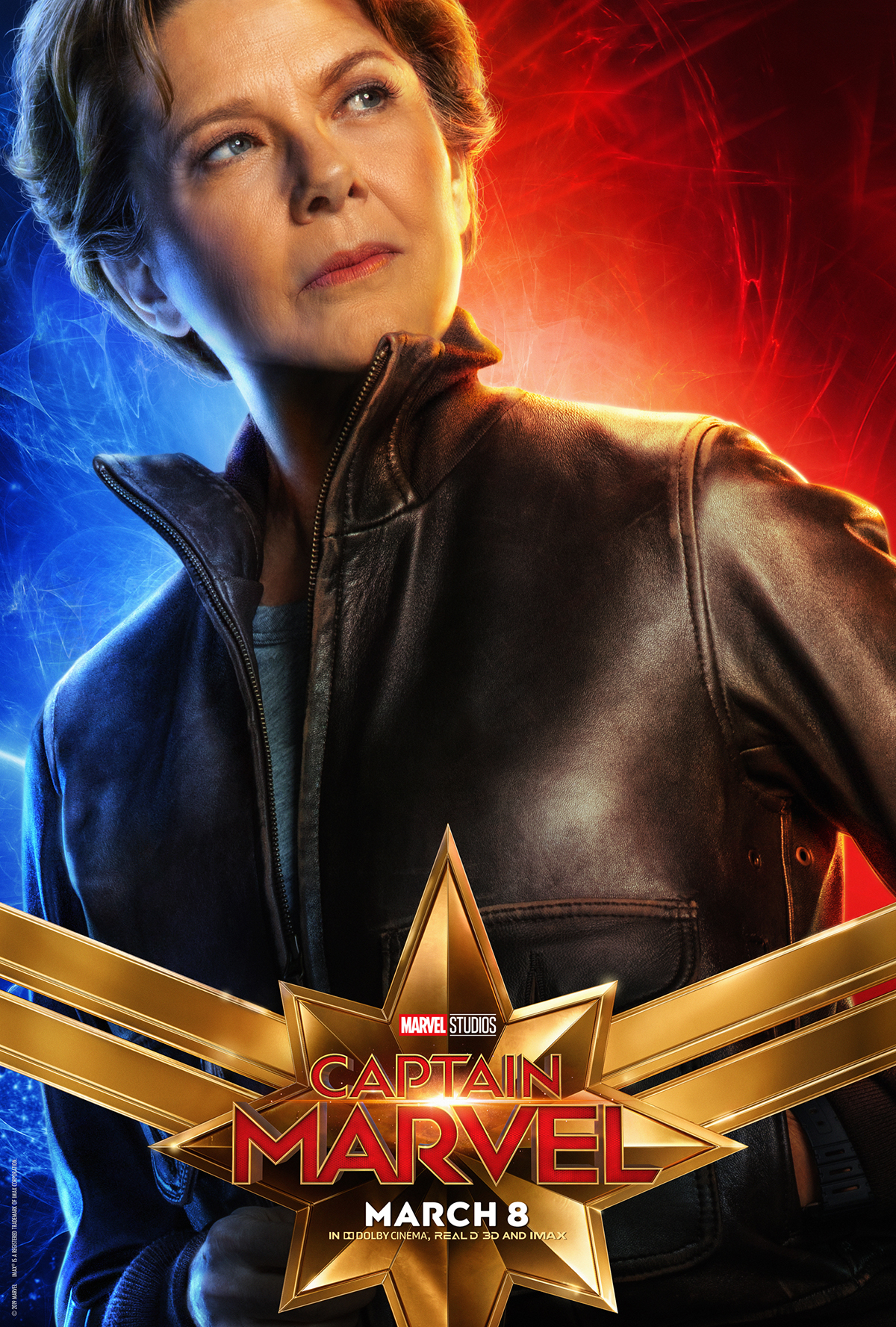
-
Captain Marvel
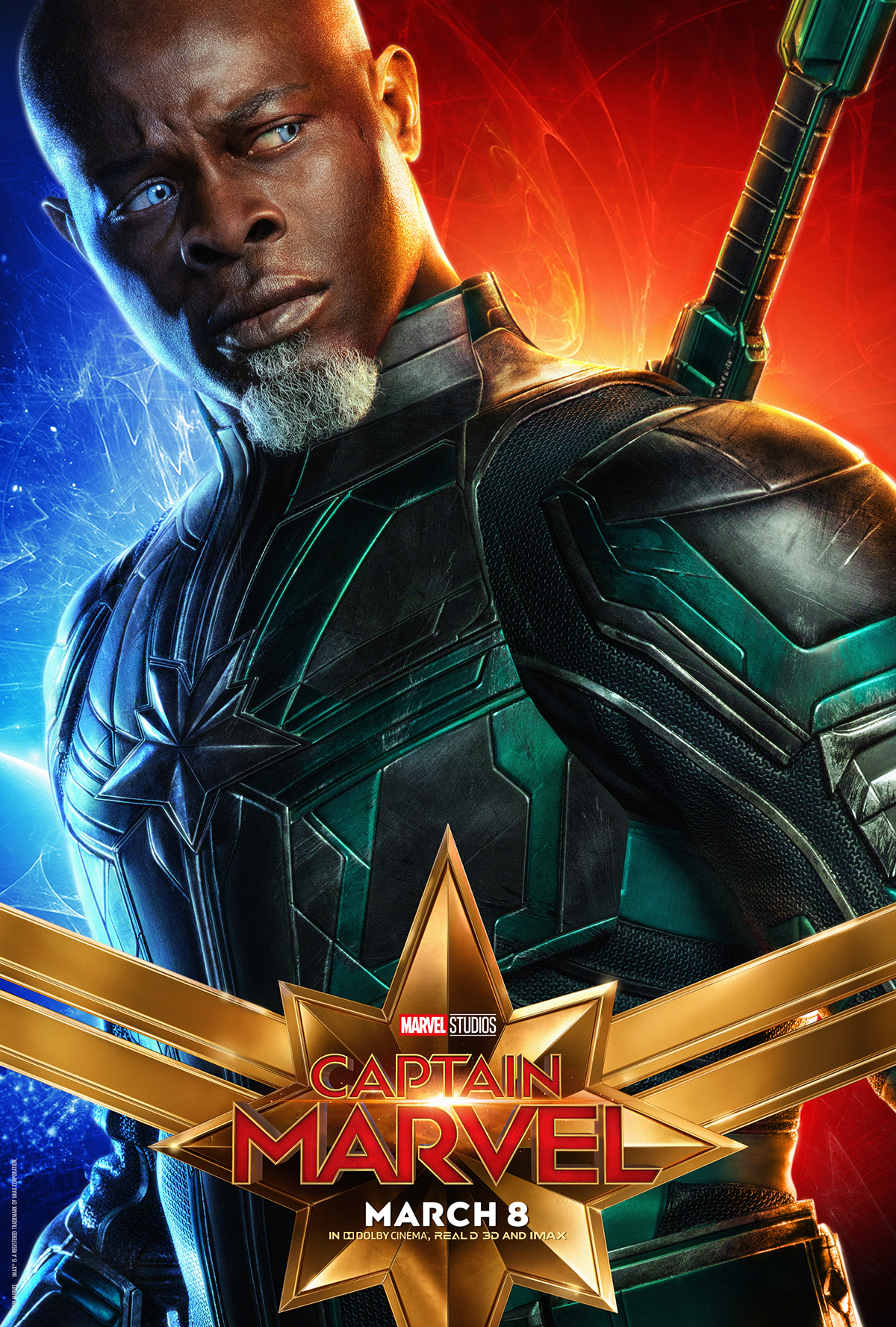
-
Captain Marvel
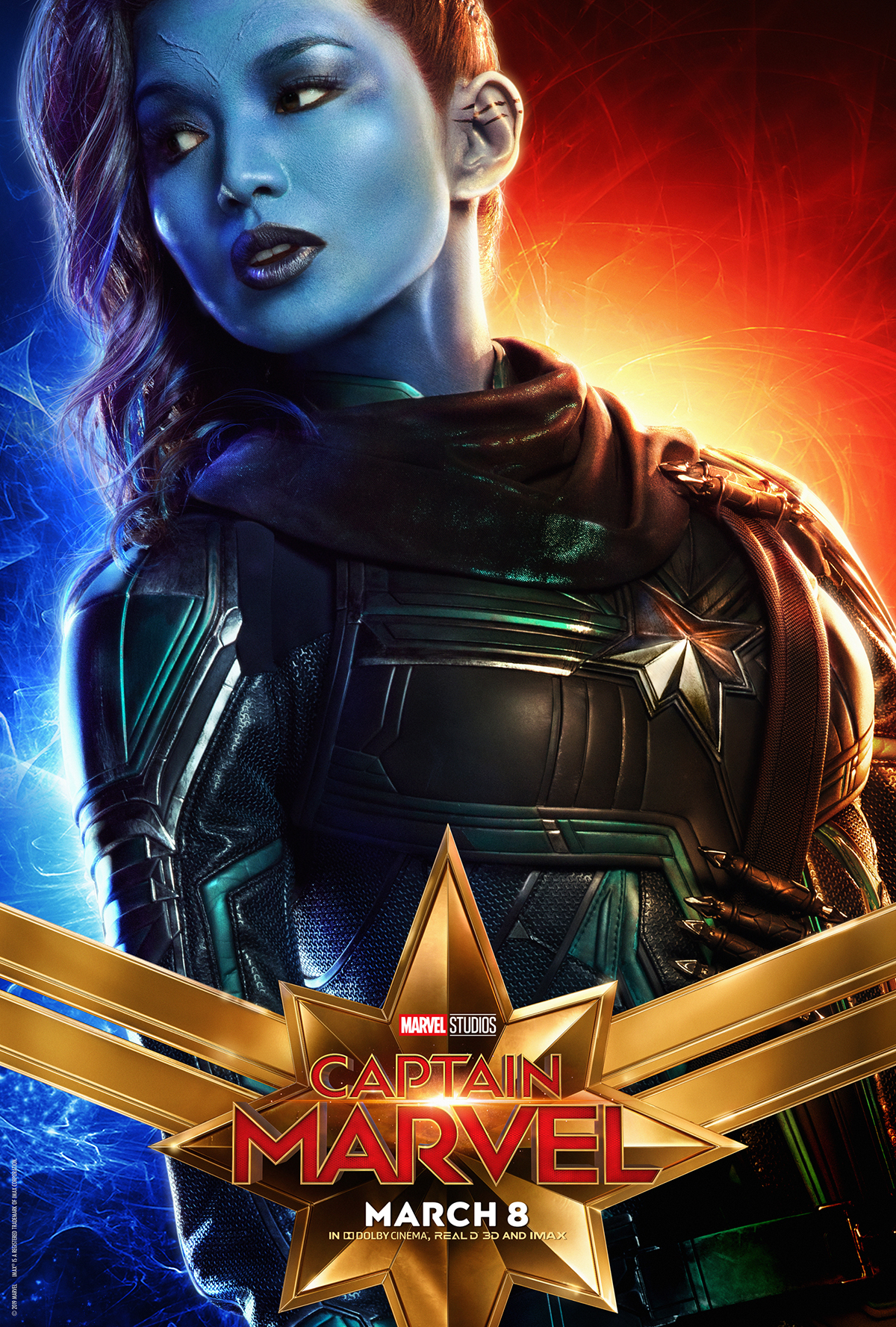
-
Captain Marvel
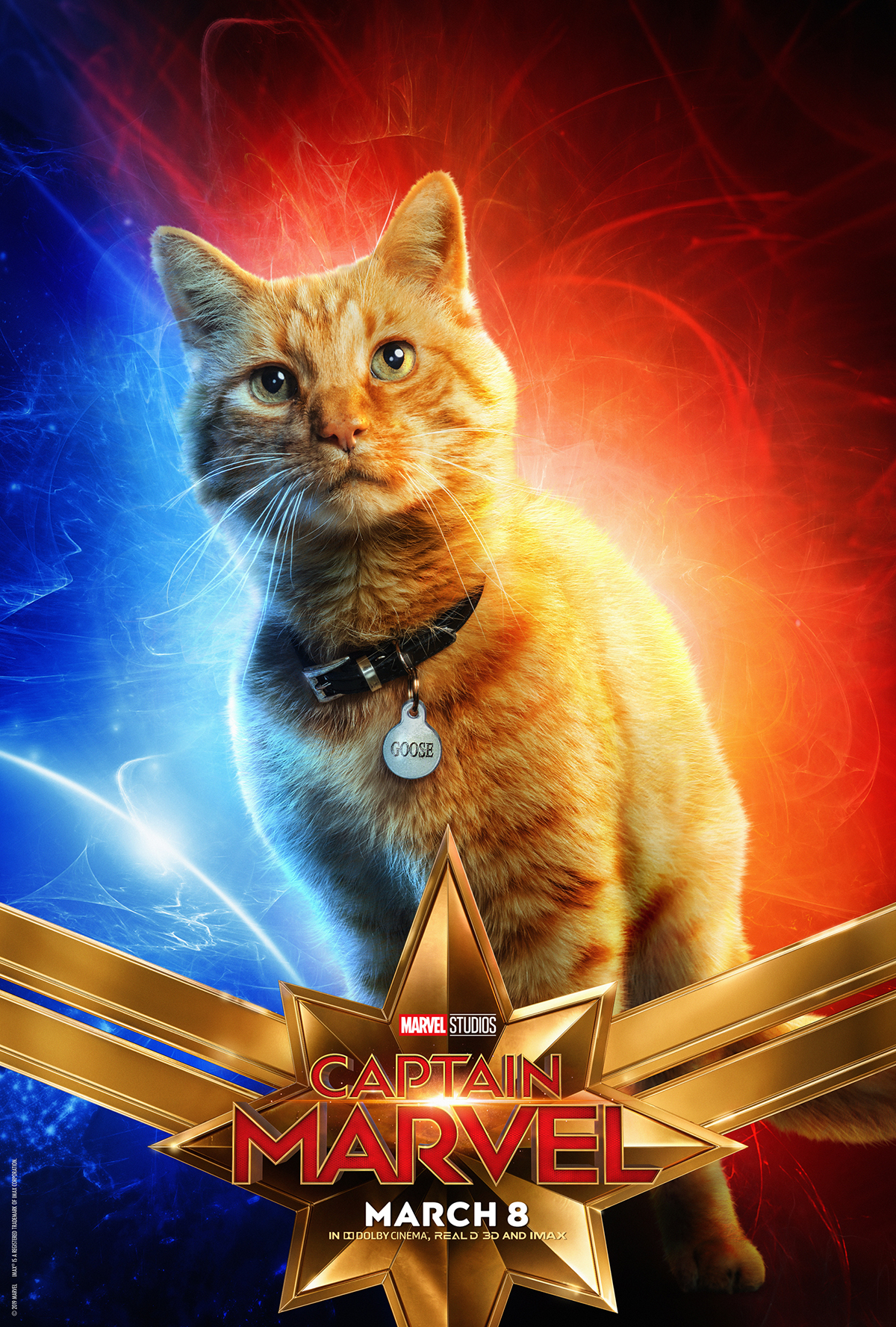
-
Captain Marvel
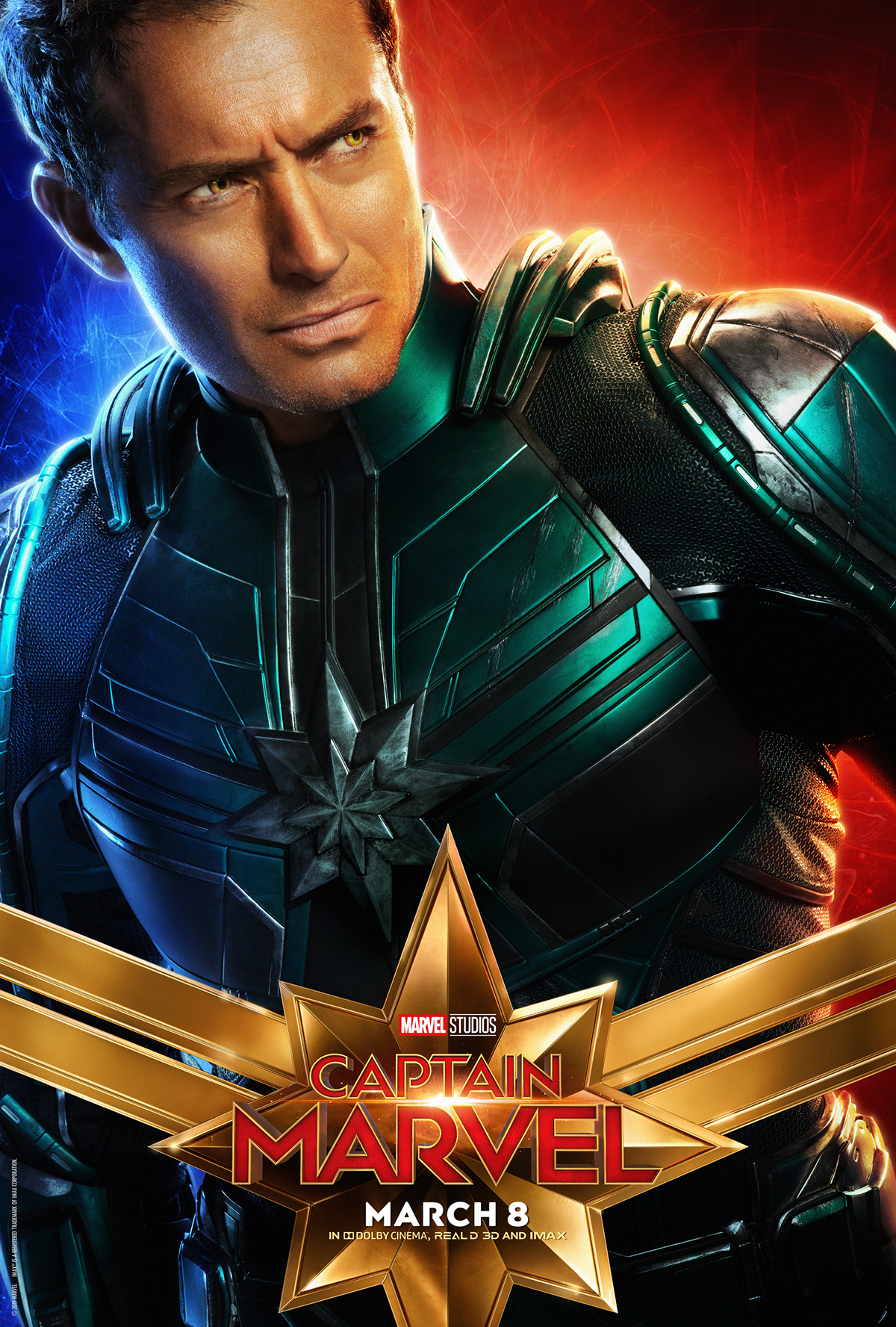
-
Captain Marvel
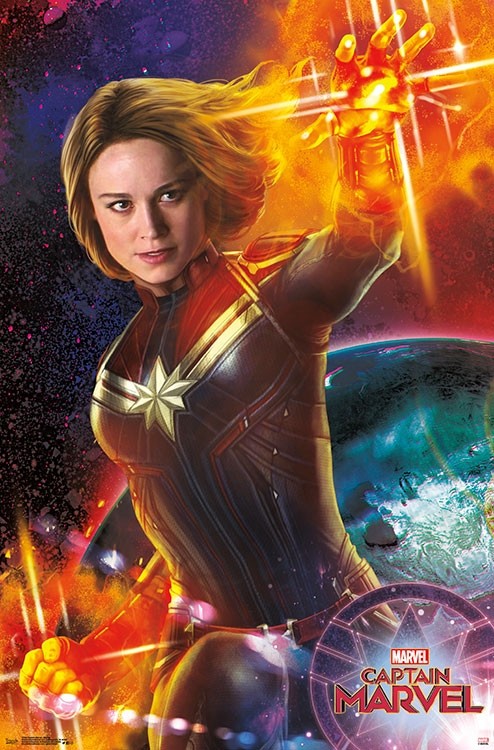
-
Marvel1
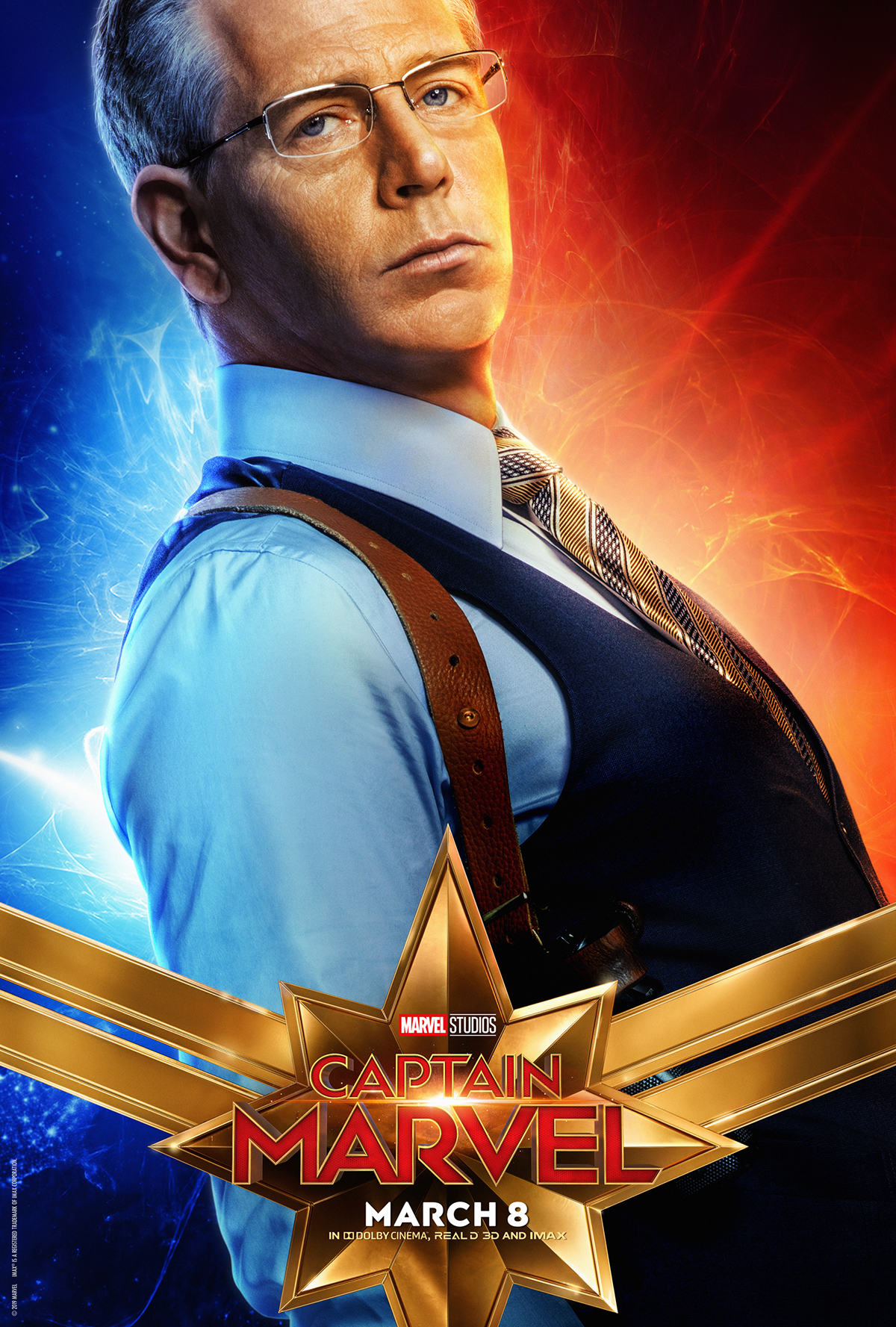
-
Captain Marvel
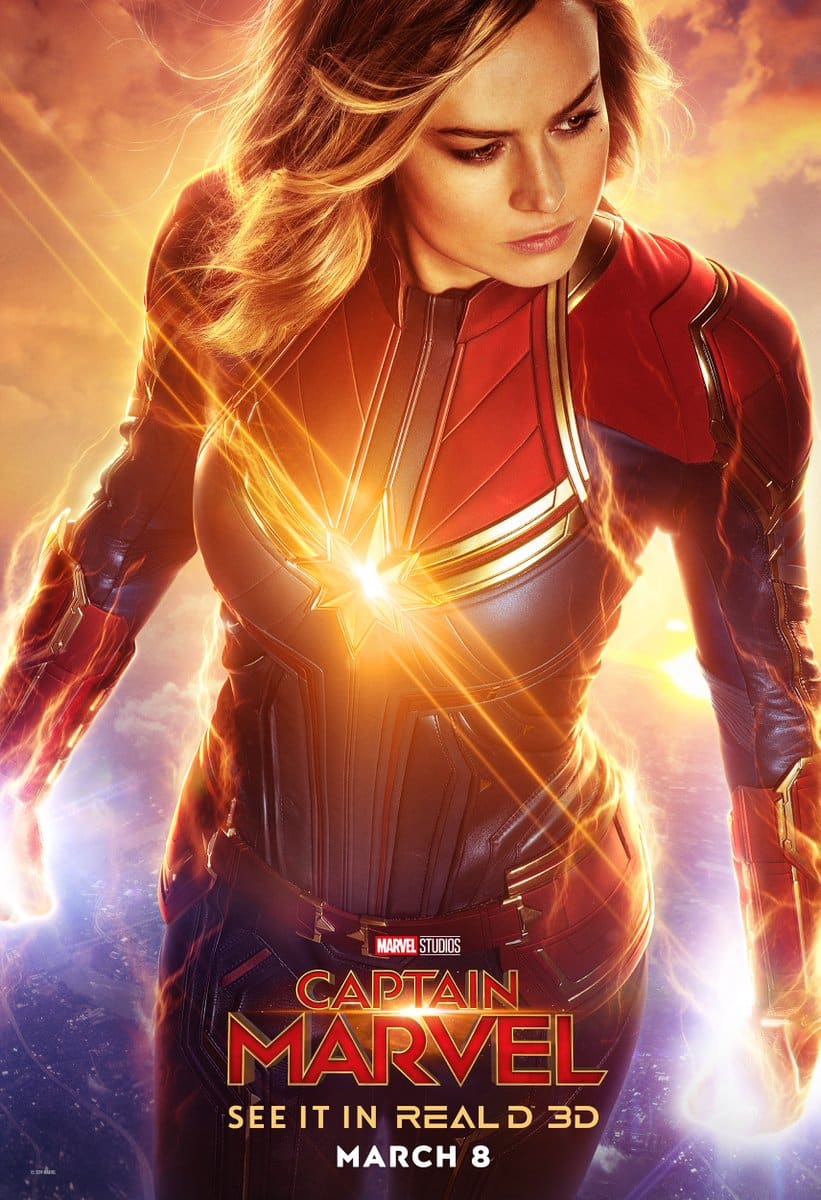
-
Captain Marvel
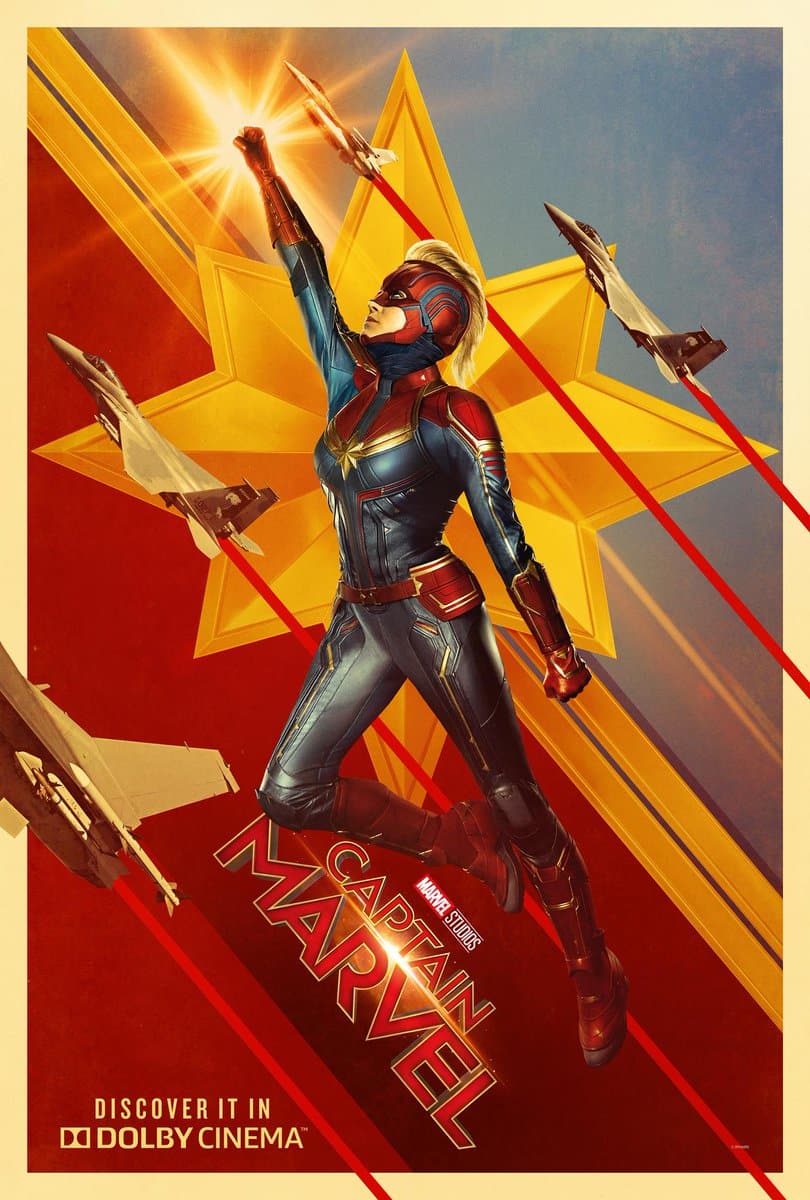
-
Captain Marvel
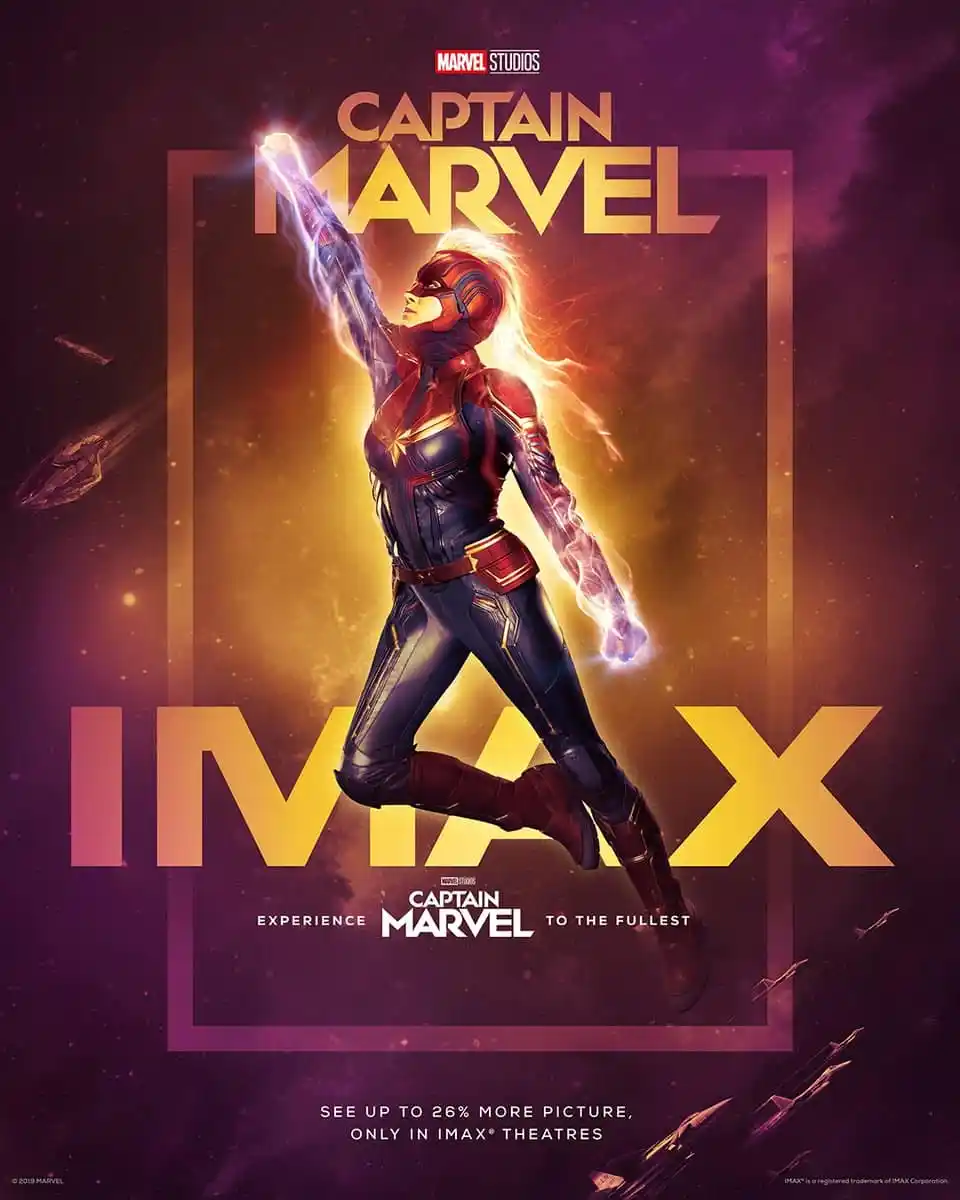
-
Captain Marvel
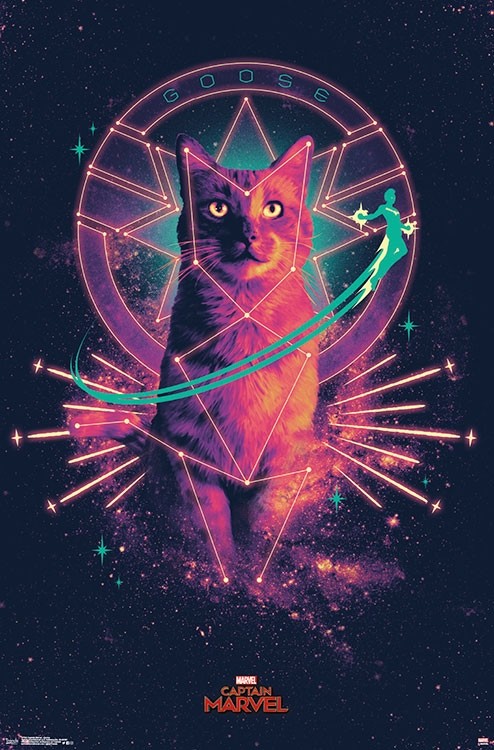
-
Captain Marvel
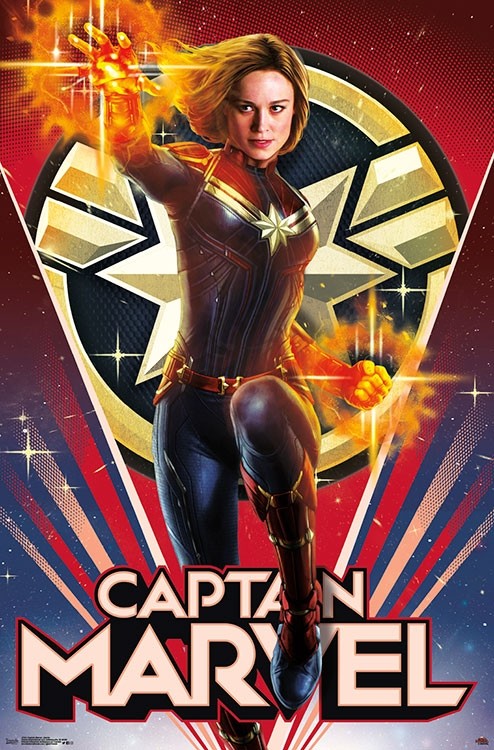
-
Captain Marvel
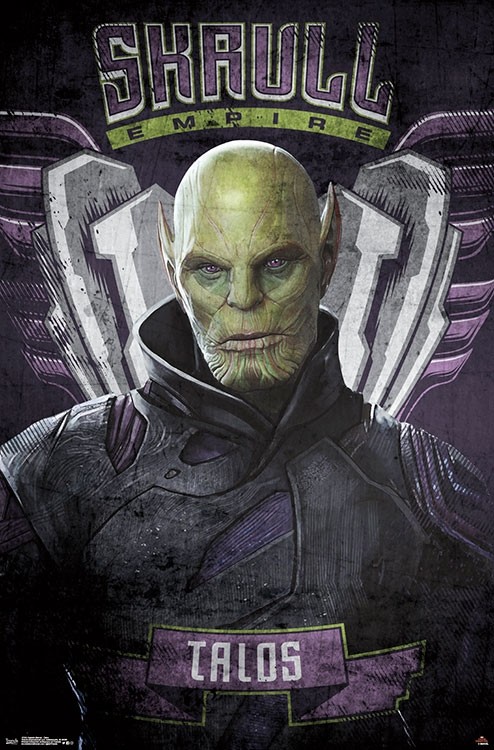
-
Marvel Studios' CAPTAIN MARVELCarol Danvers/Captain Marvel (Brie Larson)Photo: Chuck Zlotnick©Marvel Studios 2019
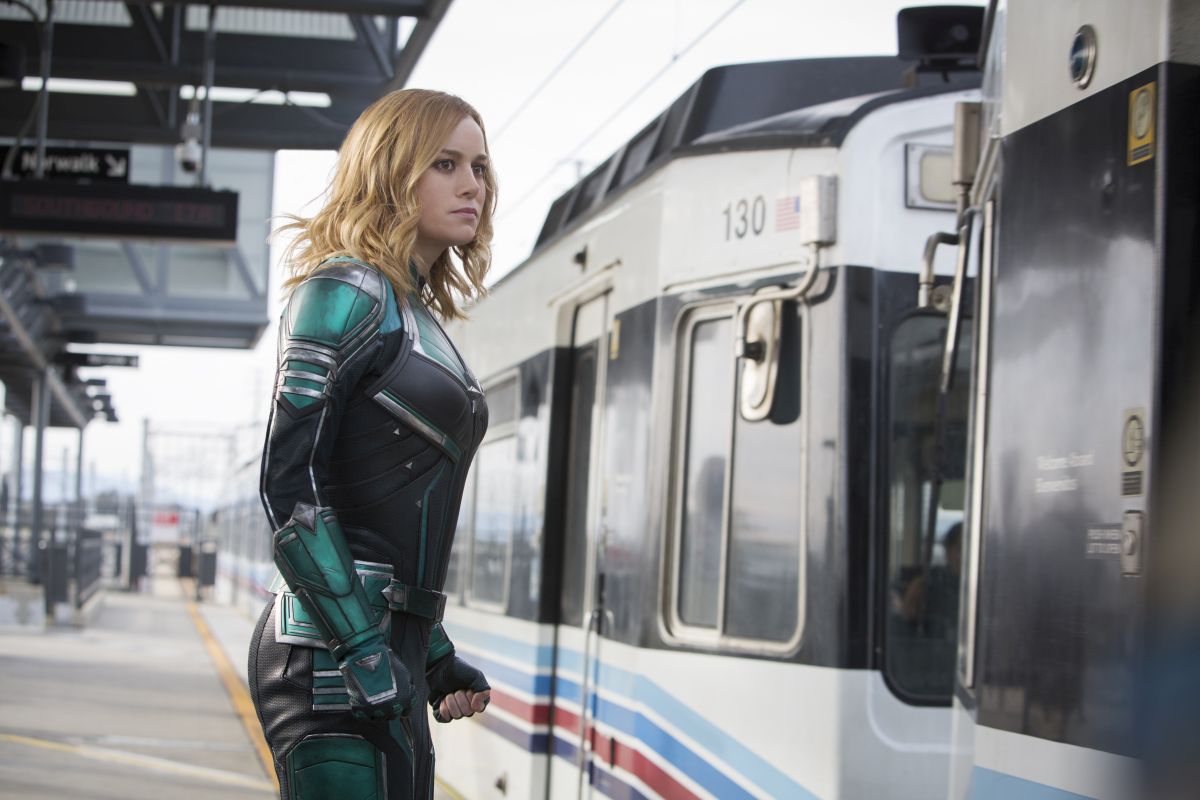
Marvel Studios' CAPTAIN MARVELCarol Danvers/Captain Marvel (Brie Larson)Photo: Chuck Zlotnick©Marvel Studios 2019
-
Marvel Studios' CAPTAIN MARVELAgent Keller (Ben Mendelsohn) Photo: Film Frame©Marvel Studios 2019

Marvel Studios' CAPTAIN MARVELAgent Keller (Ben Mendelsohn) Photo: Film Frame©Marvel Studios 2019
-
Marvel Studios' CAPTAIN MARVELStarforcePhoto: Film Frame©Marvel Studios 2019

Marvel Studios' CAPTAIN MARVELStarforcePhoto: Film Frame©Marvel Studios 2019
-
Marvel Studios' CAPTAIN MARVELGoose Photo: Film Frame©Marvel Studios 2019

Marvel Studios' CAPTAIN MARVELGoose Photo: Film Frame©Marvel Studios 2019
-
Marvel Studios' CAPTAIN MARVELCaptain Marvel (Brie Larson) Photo: Film Frame©Marvel Studios 2019

Marvel Studios' CAPTAIN MARVELCaptain Marvel (Brie Larson) Photo: Film Frame©Marvel Studios 2019
-
Marvel Studios' CAPTAIN MARVELL to R: Maria Rambeau (Lashana Lynch) and Captain Marvel (Brie Larson) Photo: Film Frame©Marvel Studios 2019

Marvel Studios' CAPTAIN MARVELL to R: Maria Rambeau (Lashana Lynch) and Captain Marvel (Brie Larson) Photo: Film Frame©Marvel Studios 2019
-
Marvel Studios' CAPTAIN MARVELCaptain Marvel (Brie Larson) Photo: Film Frame©Marvel Studios 2019

Marvel Studios' CAPTAIN MARVELCaptain Marvel (Brie Larson) Photo: Film Frame©Marvel Studios 2019
-
Marvel Studios' CAPTAIN MARVELCaptain Marvel (Brie Larson) Photo: Film Frame©Marvel Studios 2019

Marvel Studios' CAPTAIN MARVELCaptain Marvel (Brie Larson) Photo: Film Frame©Marvel Studios 2019
-
Marvel Studios' CAPTAIN MARVELCaptain Marvel (Brie Larson) Photo: Film Frame©Marvel Studios 2019

Marvel Studios' CAPTAIN MARVELCaptain Marvel (Brie Larson) Photo: Film Frame©Marvel Studios 2019
-
Marvel Studios' CAPTAIN MARVELRonan (Lee Pace) Photo: Film Frame©Marvel Studios 2019

Marvel Studios' CAPTAIN MARVELRonan (Lee Pace) Photo: Film Frame©Marvel Studios 2019
-
Marvel Studios' CAPTAIN MARVELL to R: Att-Lass (Algenis Perez Soto), Captain Marvel (Brie Larson) and Minn-Erva (Gemma Chan)Photo: Film Frame©Marvel Studios 2019

Marvel Studios' CAPTAIN MARVELL to R: Att-Lass (Algenis Perez Soto), Captain Marvel (Brie Larson) and Minn-Erva (Gemma Chan)Photo: Film Frame©Marvel Studios 2019
-
Marvel Studios' CAPTAIN MARVELCaptain Marvel (Brie Larson) Photo: Film Frame©Marvel Studios 2019

Marvel Studios' CAPTAIN MARVELCaptain Marvel (Brie Larson) Photo: Film Frame©Marvel Studios 2019
-
Captainmarvel5c1d276720ad0

-
Captain Marvel
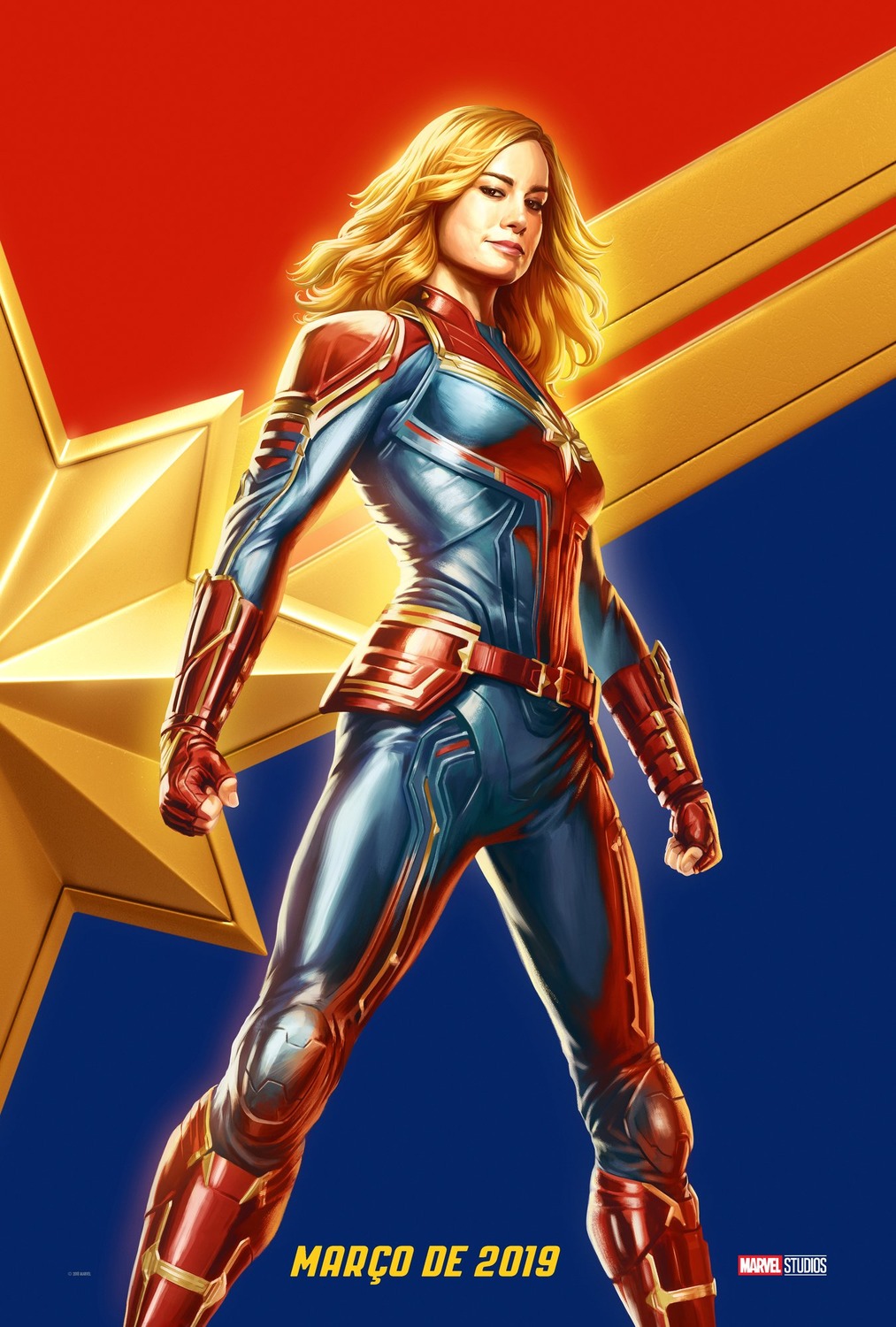
-
Captain Marvel
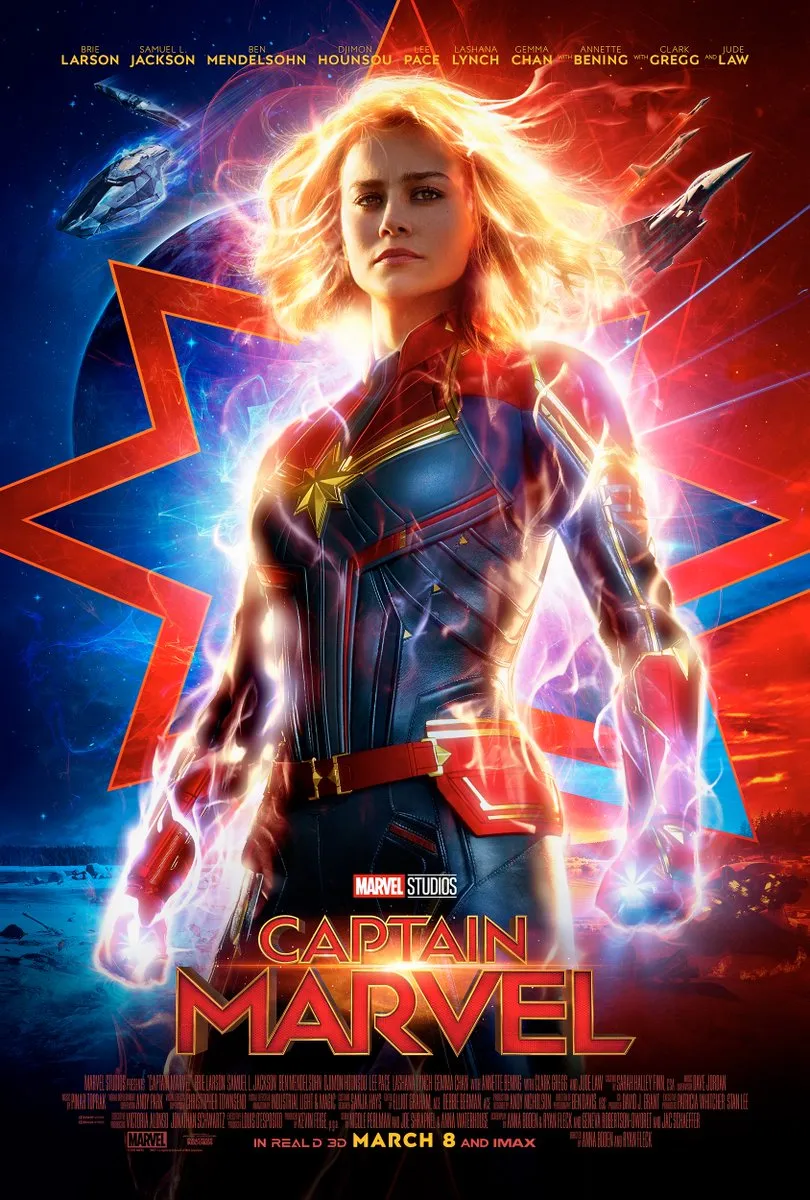
-
Captain Marvel

-
Marvel Studios' CAPTAIN MARVELCarol Danvers/Captain Marvel (Brie Larson)Photo: Chuck Zlotnick©Marvel Studios 2019
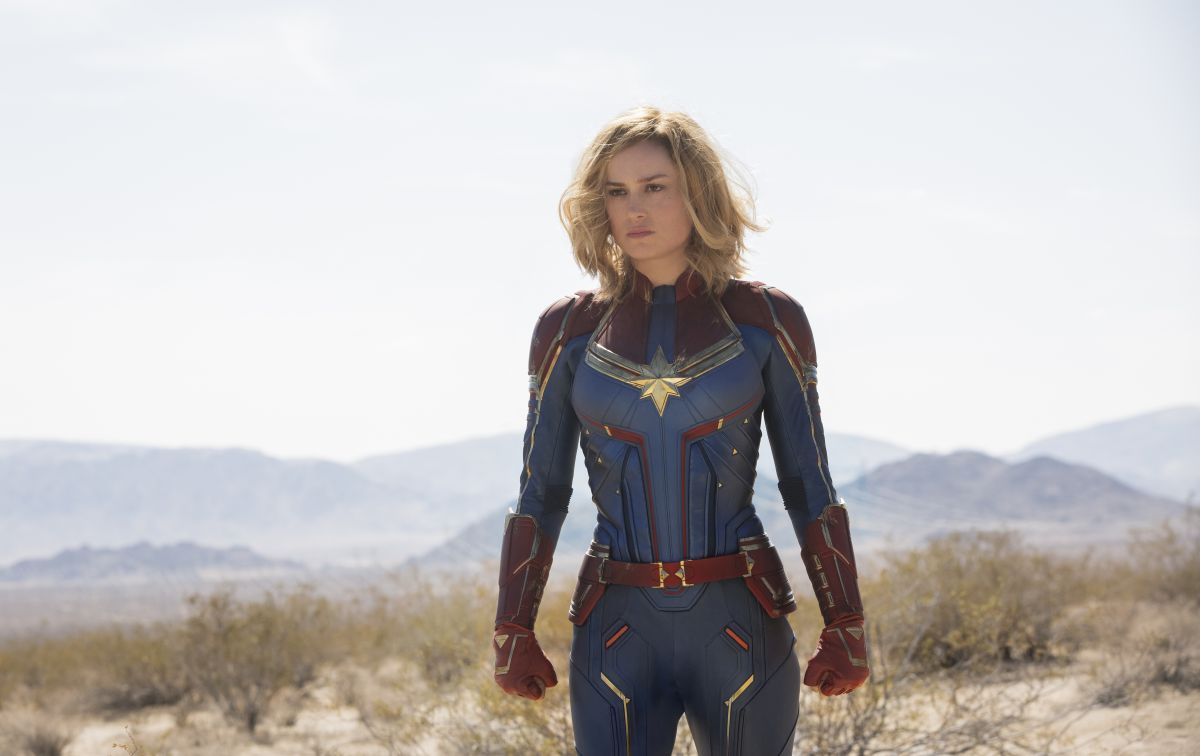
Marvel Studios' CAPTAIN MARVELCarol Danvers/Captain Marvel (Brie Larson)Photo: Chuck Zlotnick©Marvel Studios 2019
-
Marvel Studios' CAPTAIN MARVELLeft: Talos (Ben Mendelsohn)Photo: Chuck Zlotnick©Marvel Studios 2019
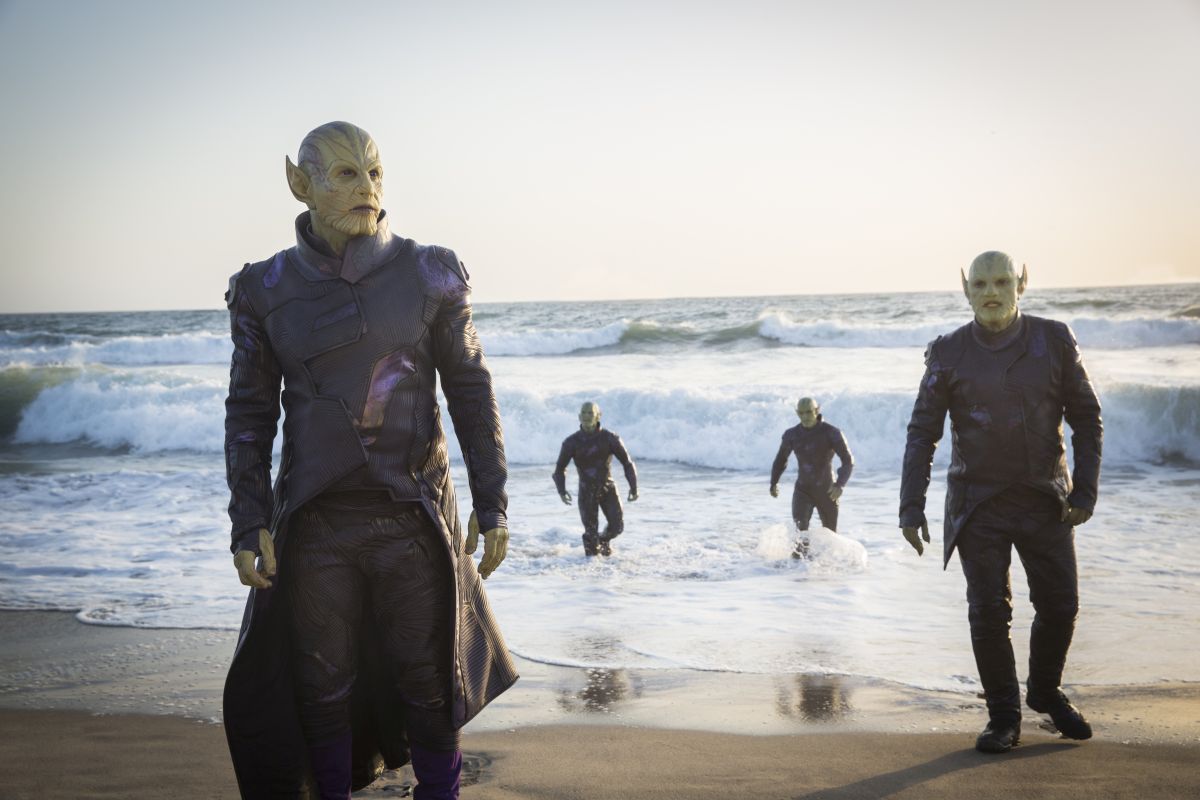
Marvel Studios' CAPTAIN MARVELLeft: Talos (Ben Mendelsohn)Photo: Chuck Zlotnick©Marvel Studios 2019
-
Marvel Studios' CAPTAIN MARVELCarol Danvers/Captain Marvel (Brie Larson)Photo: Chuck Zlotnick©Marvel Studios 2019
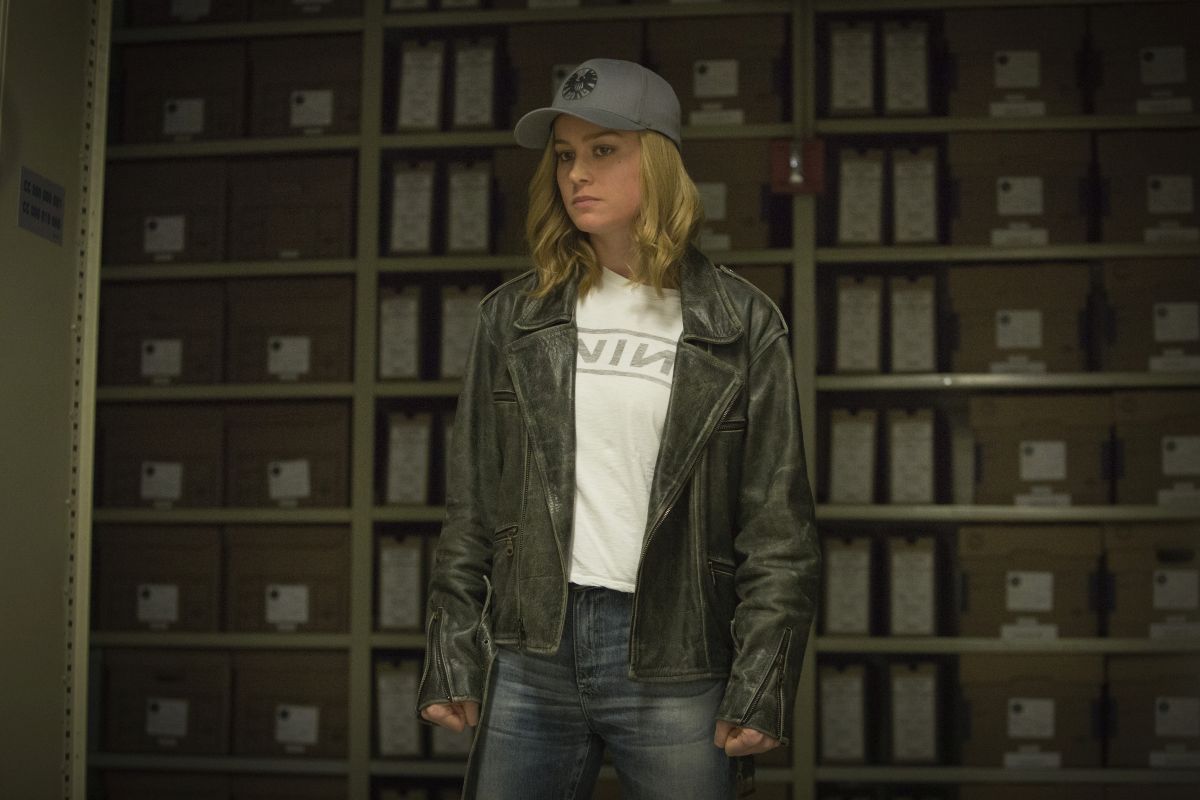
Marvel Studios' CAPTAIN MARVELCarol Danvers/Captain Marvel (Brie Larson)Photo: Chuck Zlotnick©Marvel Studios 2019
-
Marvel Studios' CAPTAIN MARVELMaria Rambeau (Lashana Lynch)Photo: Chuck Zlotnick©Marvel Studios 2019
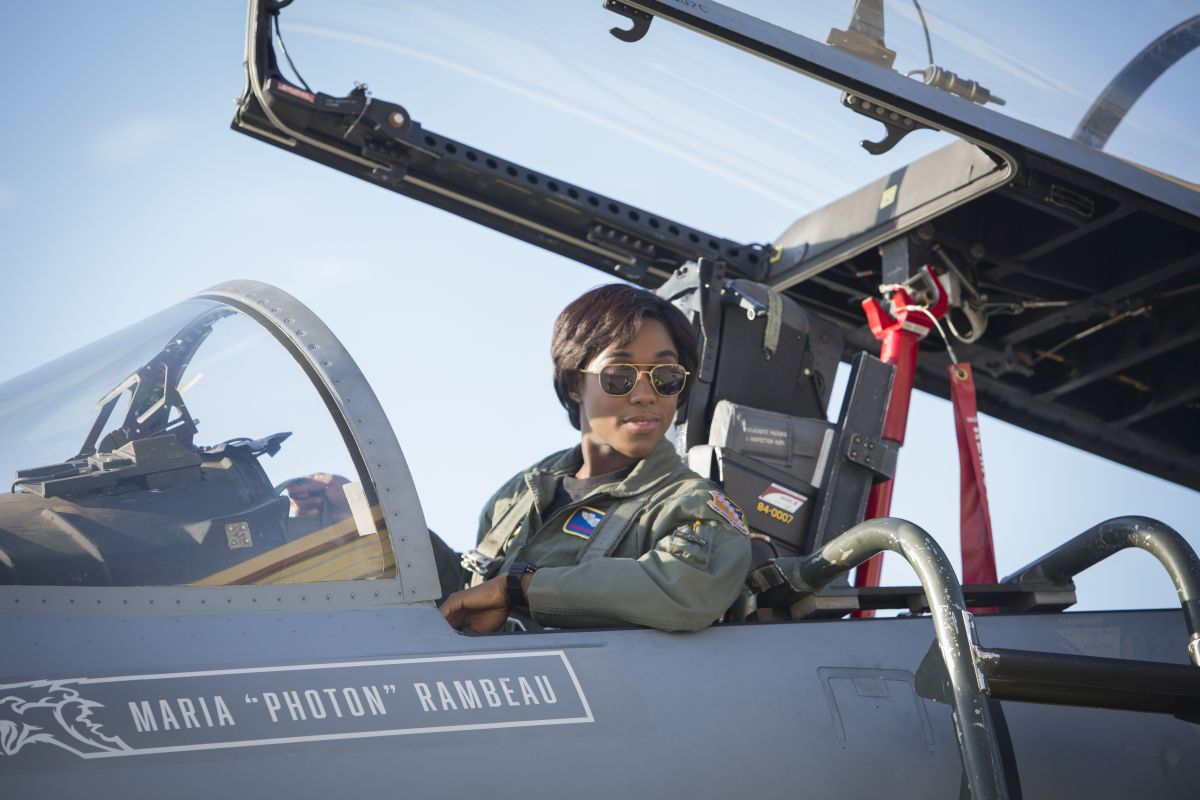
Marvel Studios' CAPTAIN MARVELMaria Rambeau (Lashana Lynch)Photo: Chuck Zlotnick©Marvel Studios 2019
-
Marvel Studios' CAPTAIN MARVELCarol Danvers/Captain Marvel (Brie Larson)Photo: Chuck Zlotnick©Marvel Studios 2019

Marvel Studios' CAPTAIN MARVELCarol Danvers/Captain Marvel (Brie Larson)Photo: Chuck Zlotnick©Marvel Studios 2019
-
Marvel Studios' CAPTAIN MARVELL to R: Leader of Starforce (Jude Law) and Carol Danvers/Captain Marvel (Brie Larson)Photo: Chuck Zlotnick©Marvel Studios 2019
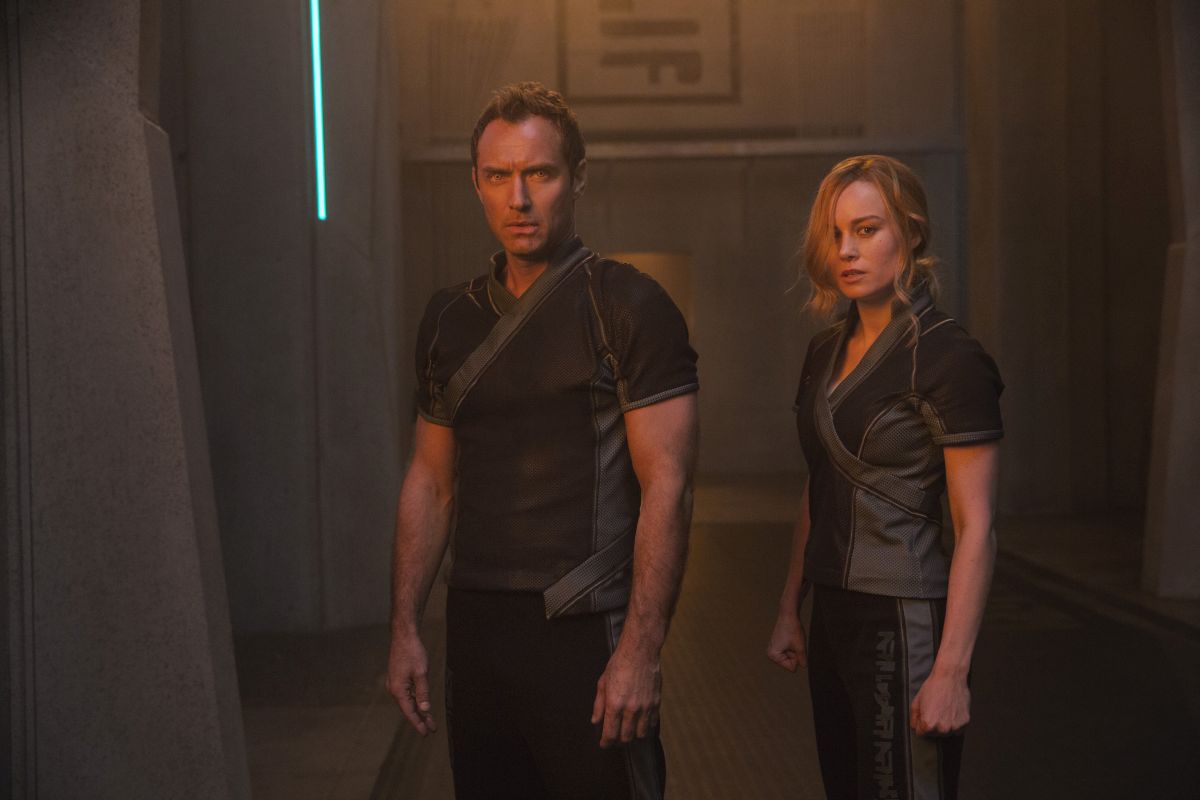
Marvel Studios' CAPTAIN MARVELL to R: Leader of Starforce (Jude Law) and Carol Danvers/Captain Marvel (Brie Larson)Photo: Chuck Zlotnick©Marvel Studios 2019
-
Marvel Studios' CAPTAIN MARVELNick Fury (Samuel L. Jackson) Photo: Chuck Zlotnick©Marvel Studios 2019

Marvel Studios' CAPTAIN MARVELNick Fury (Samuel L. Jackson) Photo: Chuck Zlotnick©Marvel Studios 2019
-
Marvel Studios' CAPTAIN MARVELL to R: Leader of Starforce (Jude Law), Ronan (Lee Pace), Korath (Djimon Hounsou), Att-Lass (Algenis Perez Soto), Carol Danvers/Captain Marvel (Brie Larson), Bron-Char (Rune Temte) and Minn-Erva (Gemma Chan)Photo: Chuck Zlotnick©Marvel Studios 2019
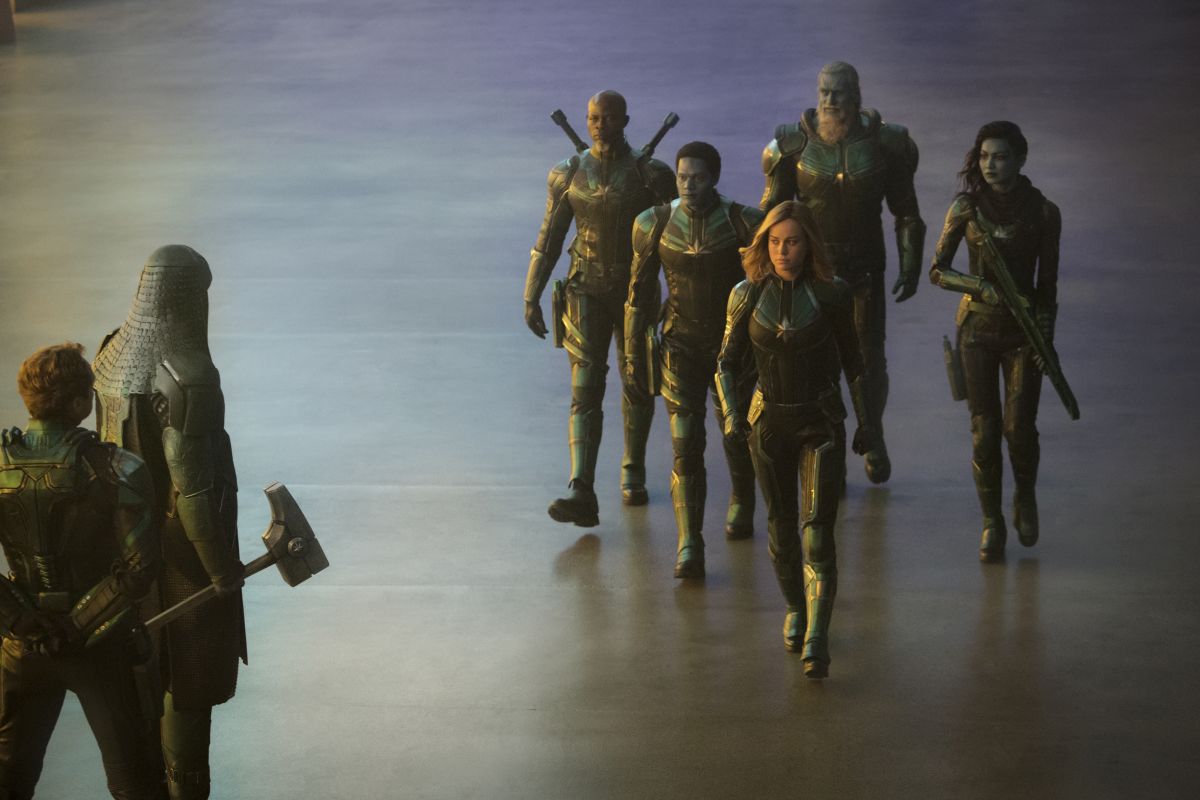
Marvel Studios' CAPTAIN MARVELL to R: Leader of Starforce (Jude Law), Ronan (Lee Pace), Korath (Djimon Hounsou), Att-Lass (Algenis Perez Soto), Carol Danvers/Captain Marvel (Brie Larson), Bron-Char (Rune Temte) and Minn-Erva (Gemma Chan)Photo: Chuck Zlotnick©Marvel Studios 2019
-
Marvel Studios' CAPTAIN MARVELL to R: Director Ryan Fleck, Ben Mendelsohn, Director Anna BodenPhoto: Chuck Zlotnick©Marvel Studios 2019
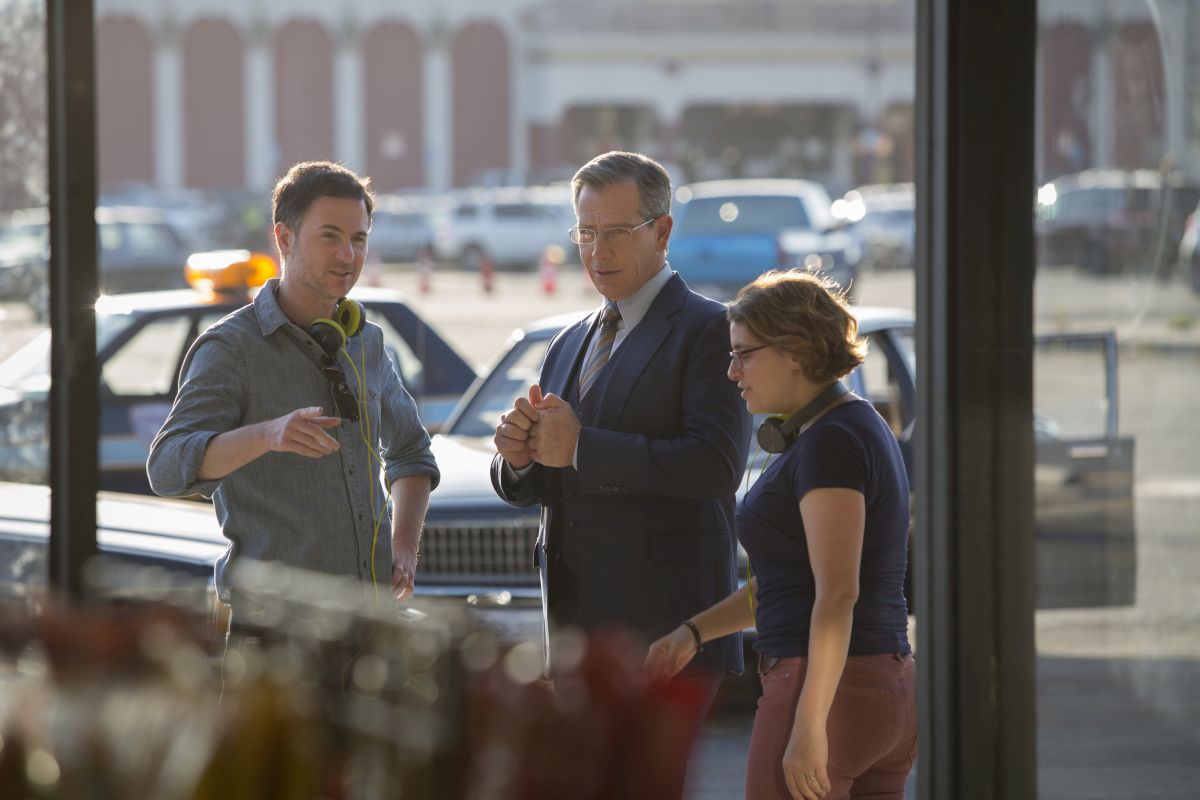
Marvel Studios' CAPTAIN MARVELL to R: Director Ryan Fleck, Ben Mendelsohn, Director Anna BodenPhoto: Chuck Zlotnick©Marvel Studios 2019
-
Captainmarvel5ba0ff4127e27
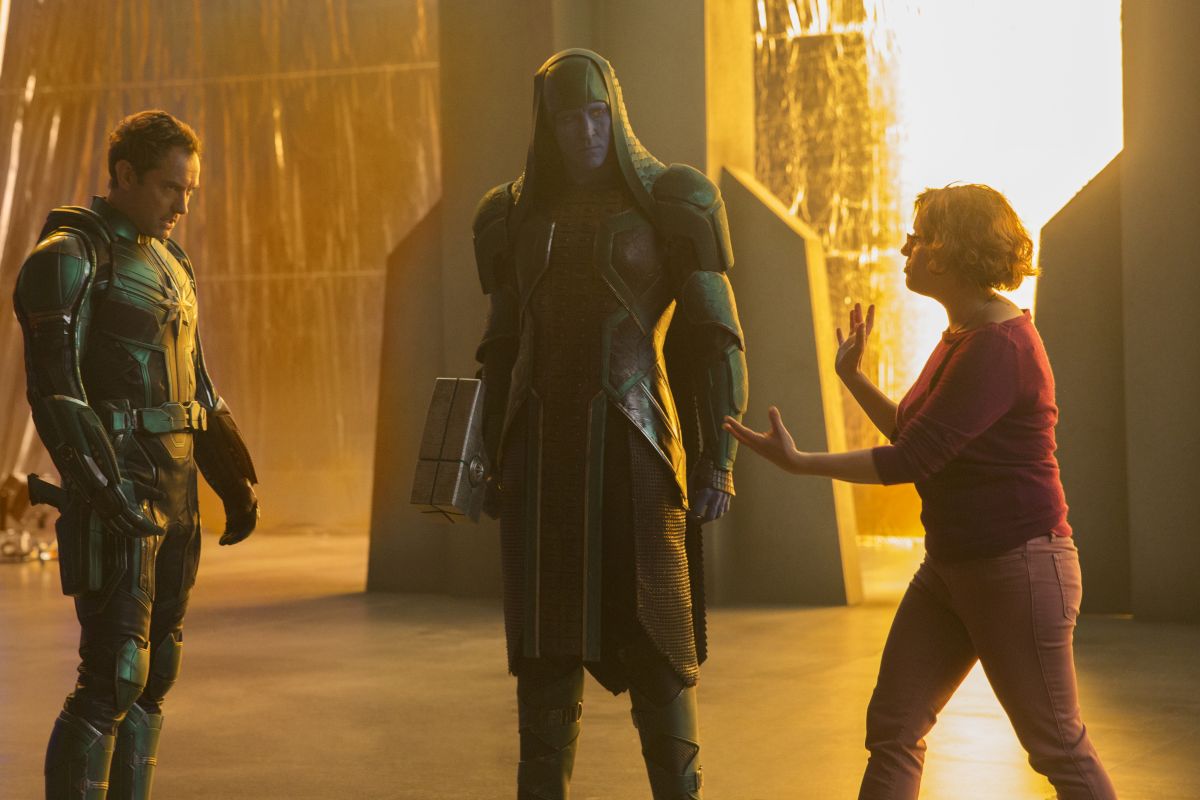
null
-
Captain Marvel

-
Captain Marvel
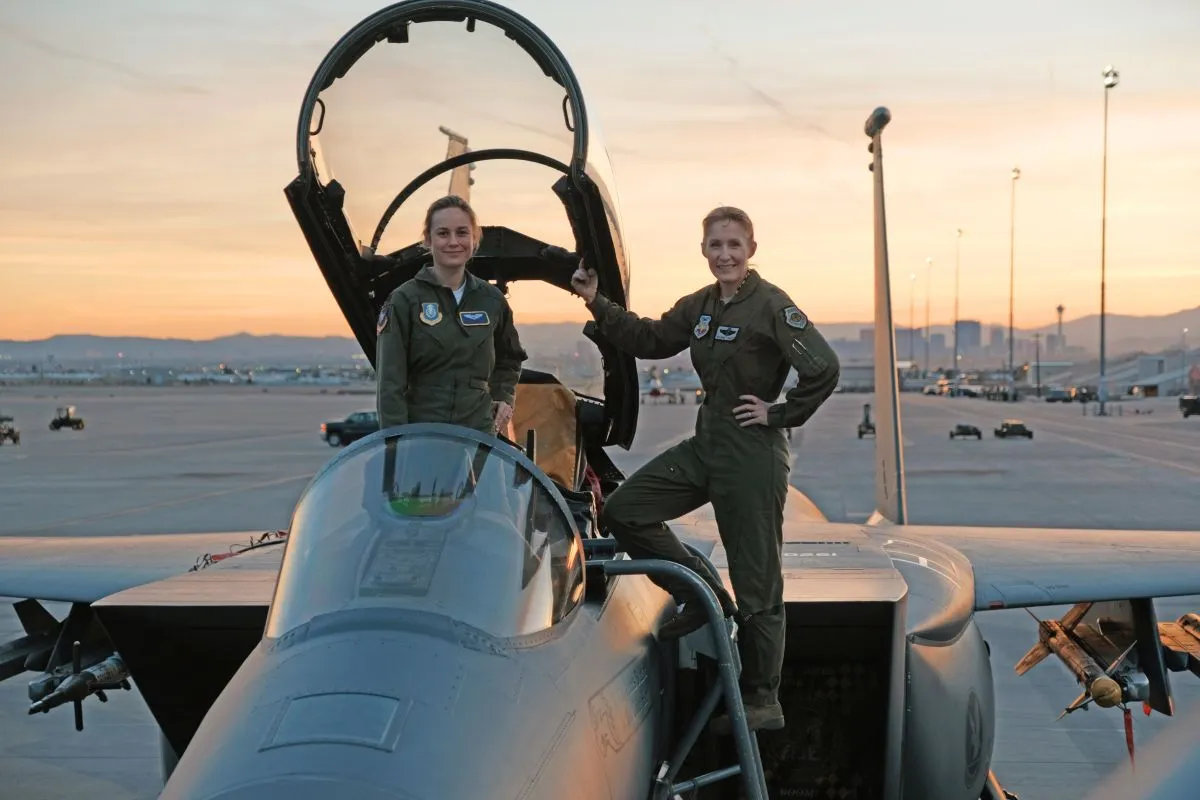
Marvel Studios' CAPTAIN MARVELBrie Larson (left) gets hands-on help from Brigadier General Jeannie Leavitt, 57th Wing Commander (right), on a recent trip to Nellis Air Force Base in Nevada to research her character, Carol Danvers aka Captain Marvel, for Marvel Studios’ “Captain Marvel.”Photo: Brad Baruh©Marvel Studios 2019
-
Captain Marvel

-
Captain Marvel

